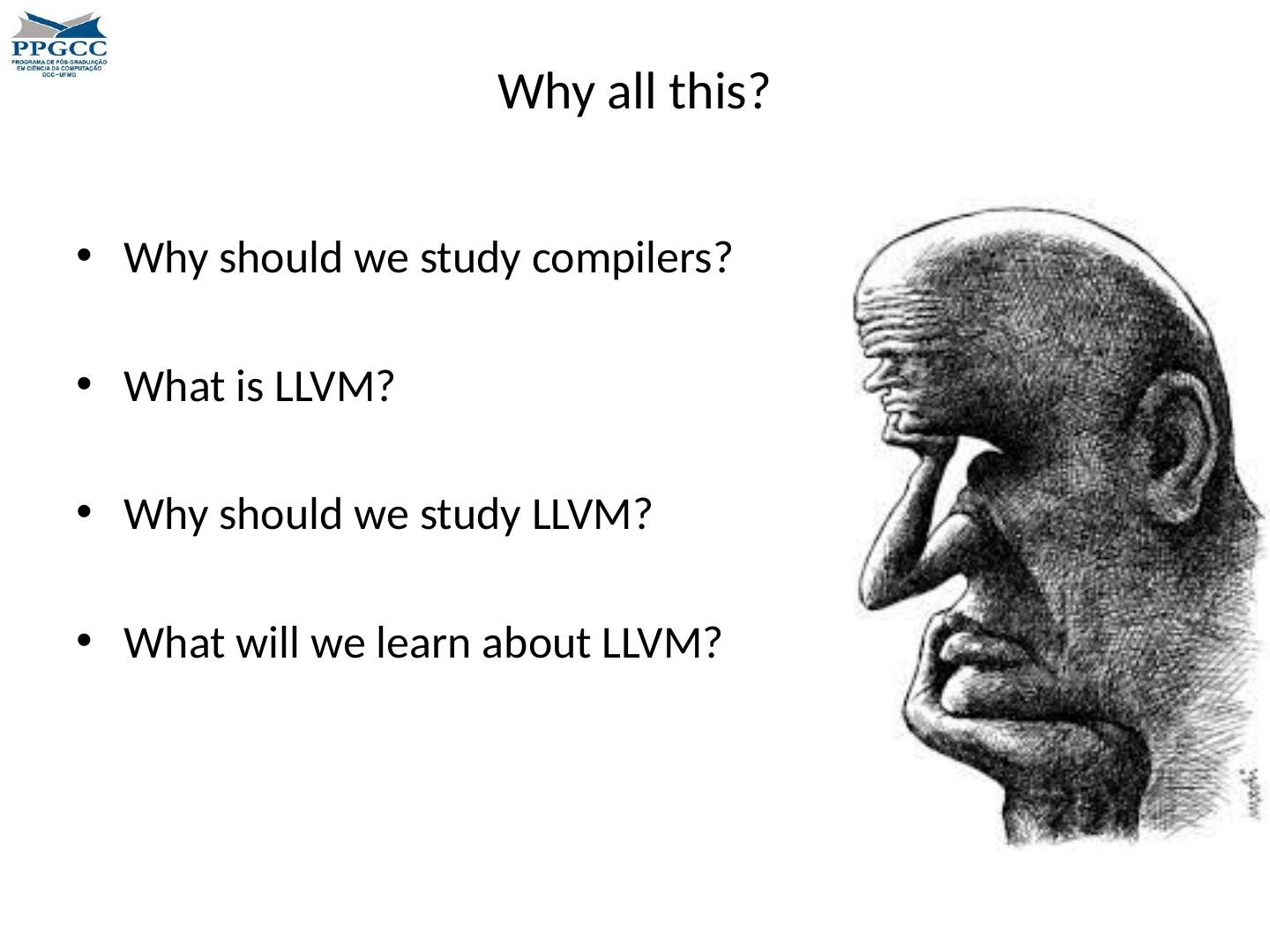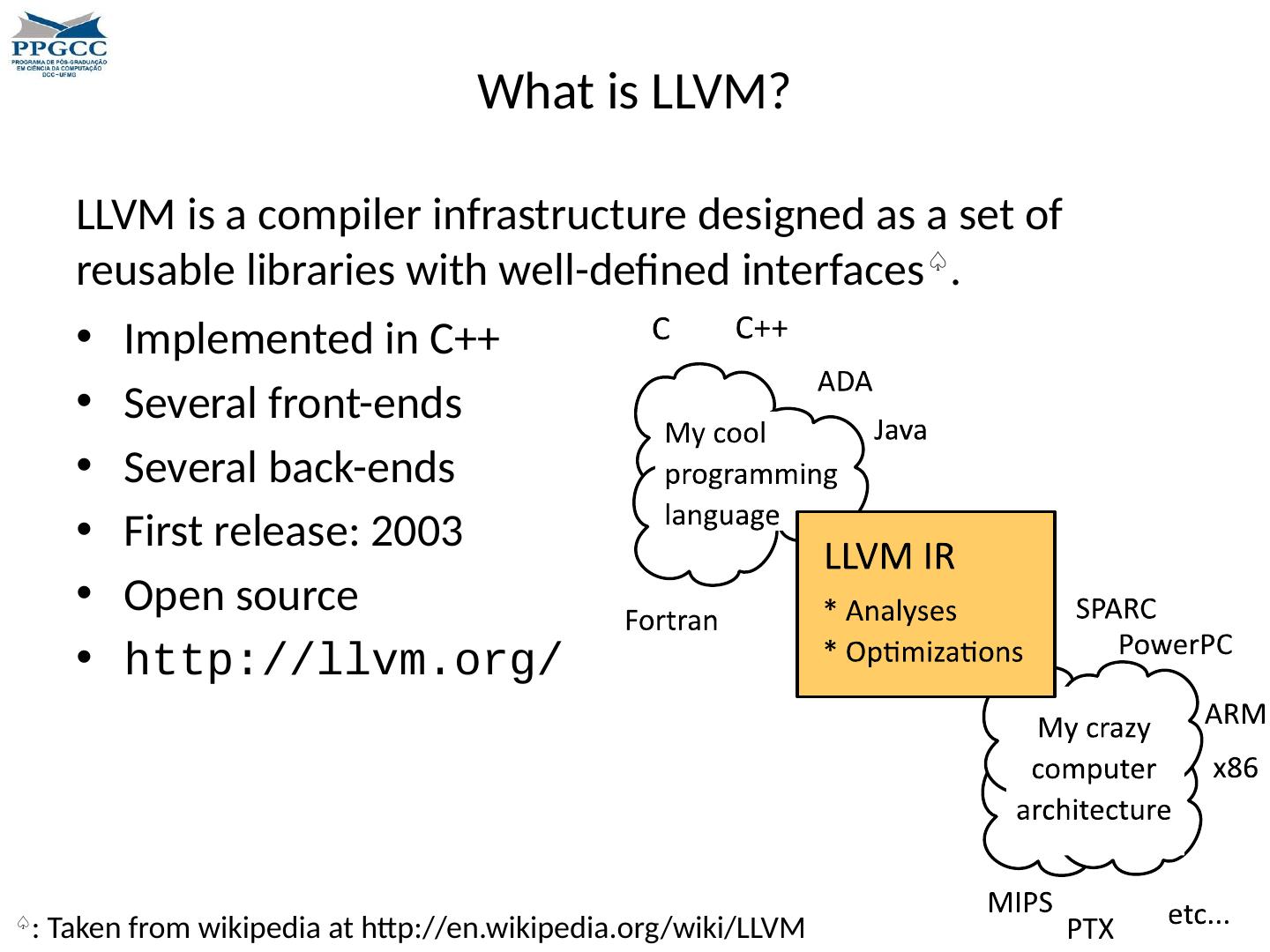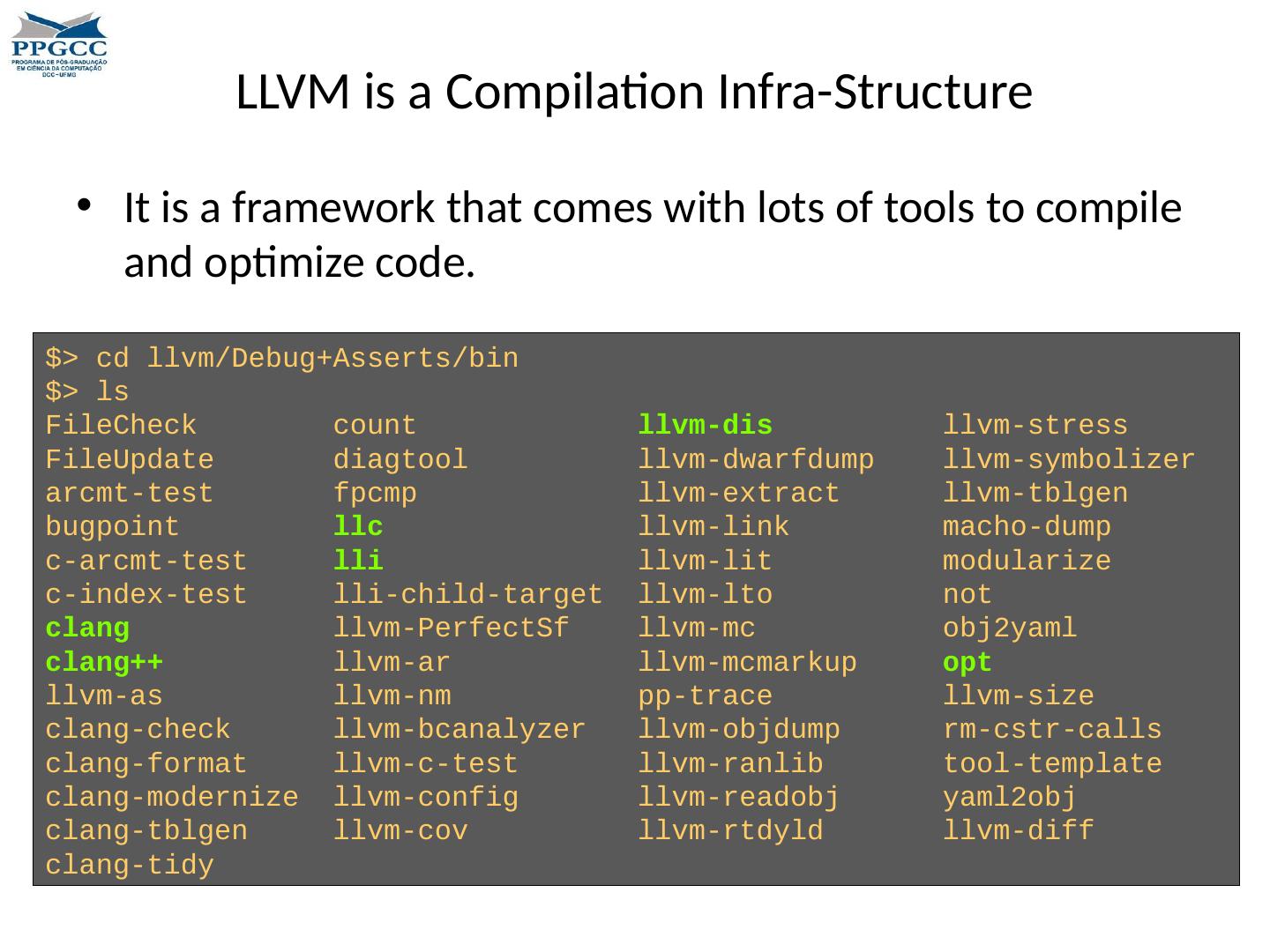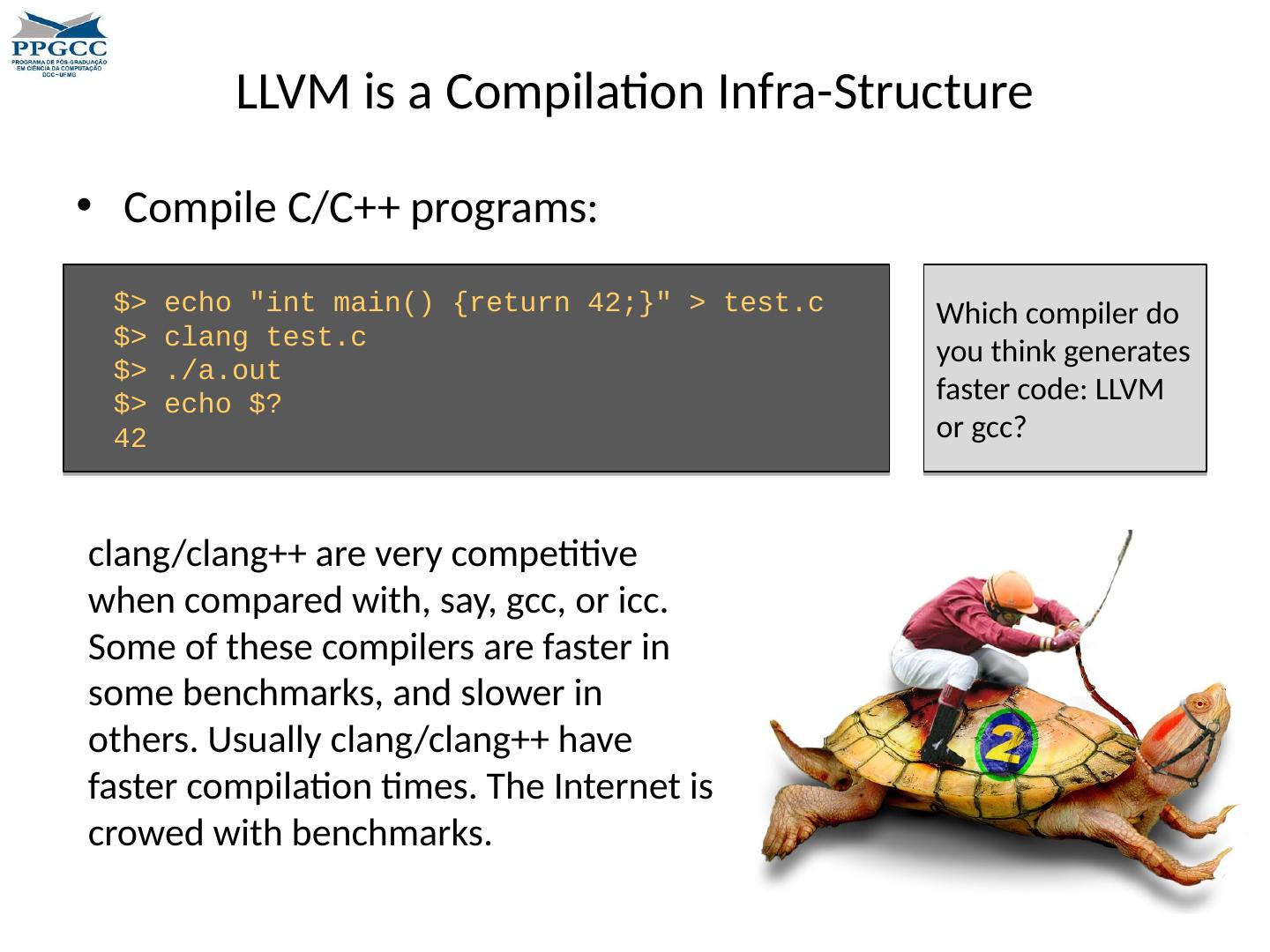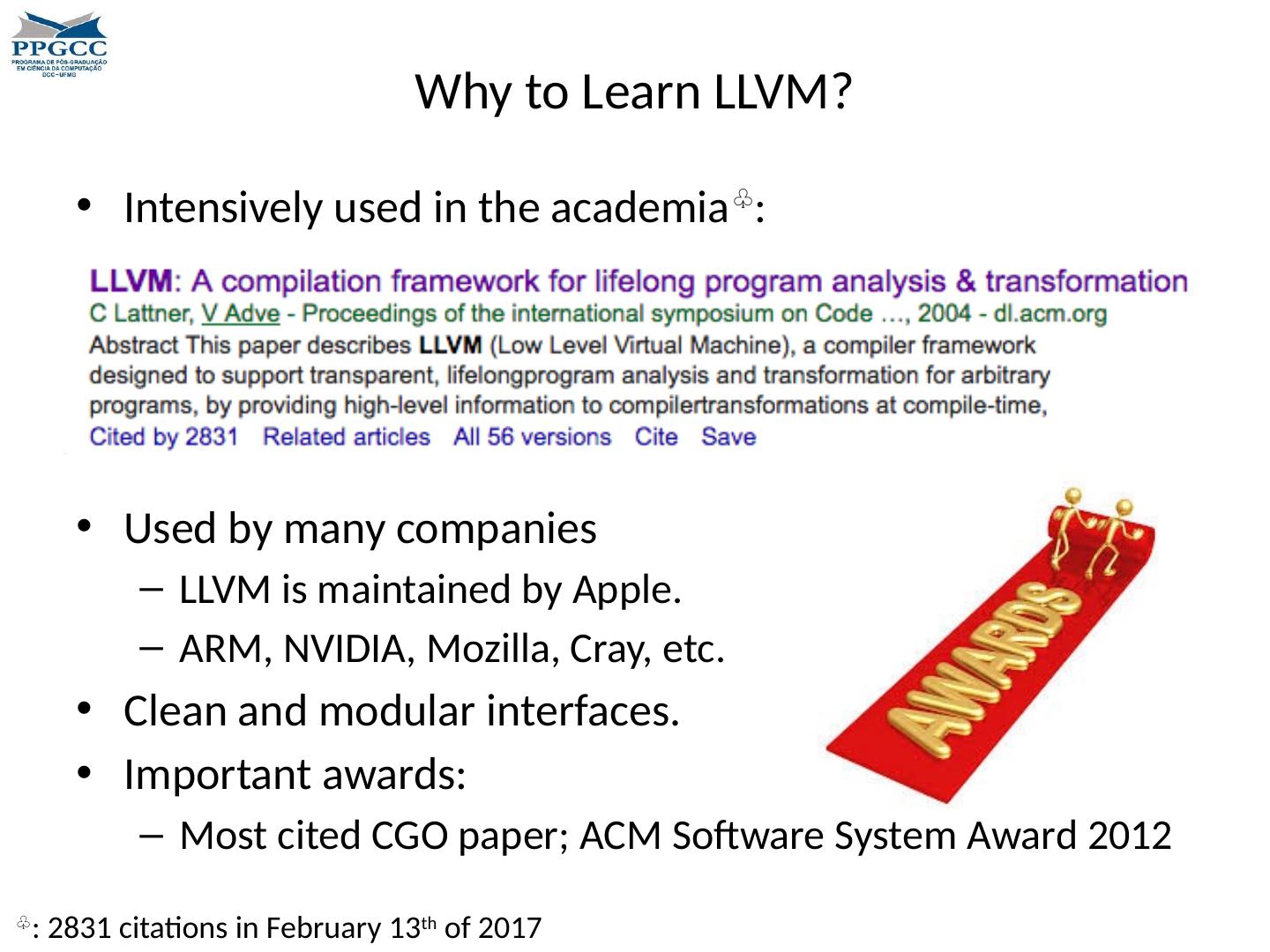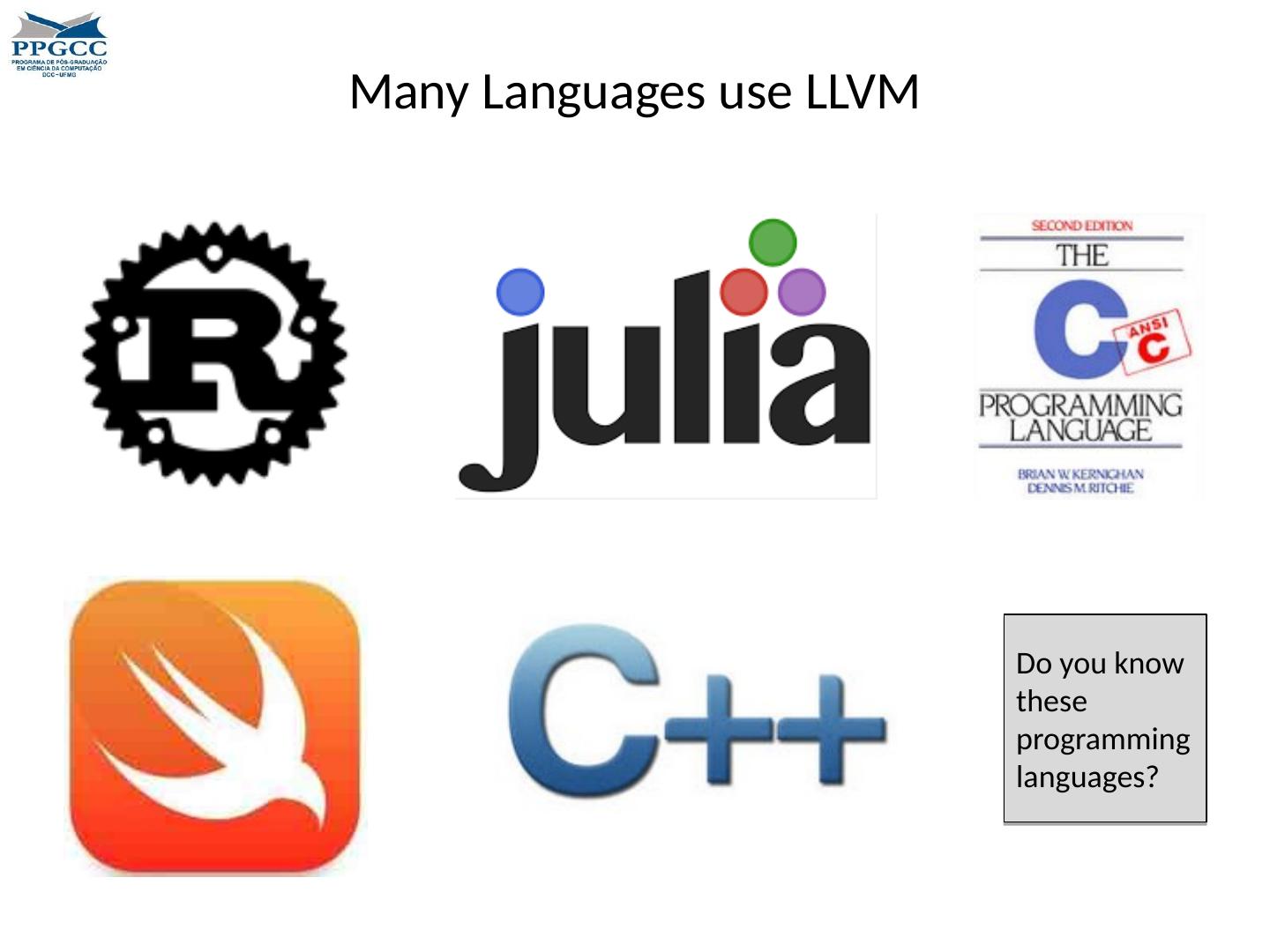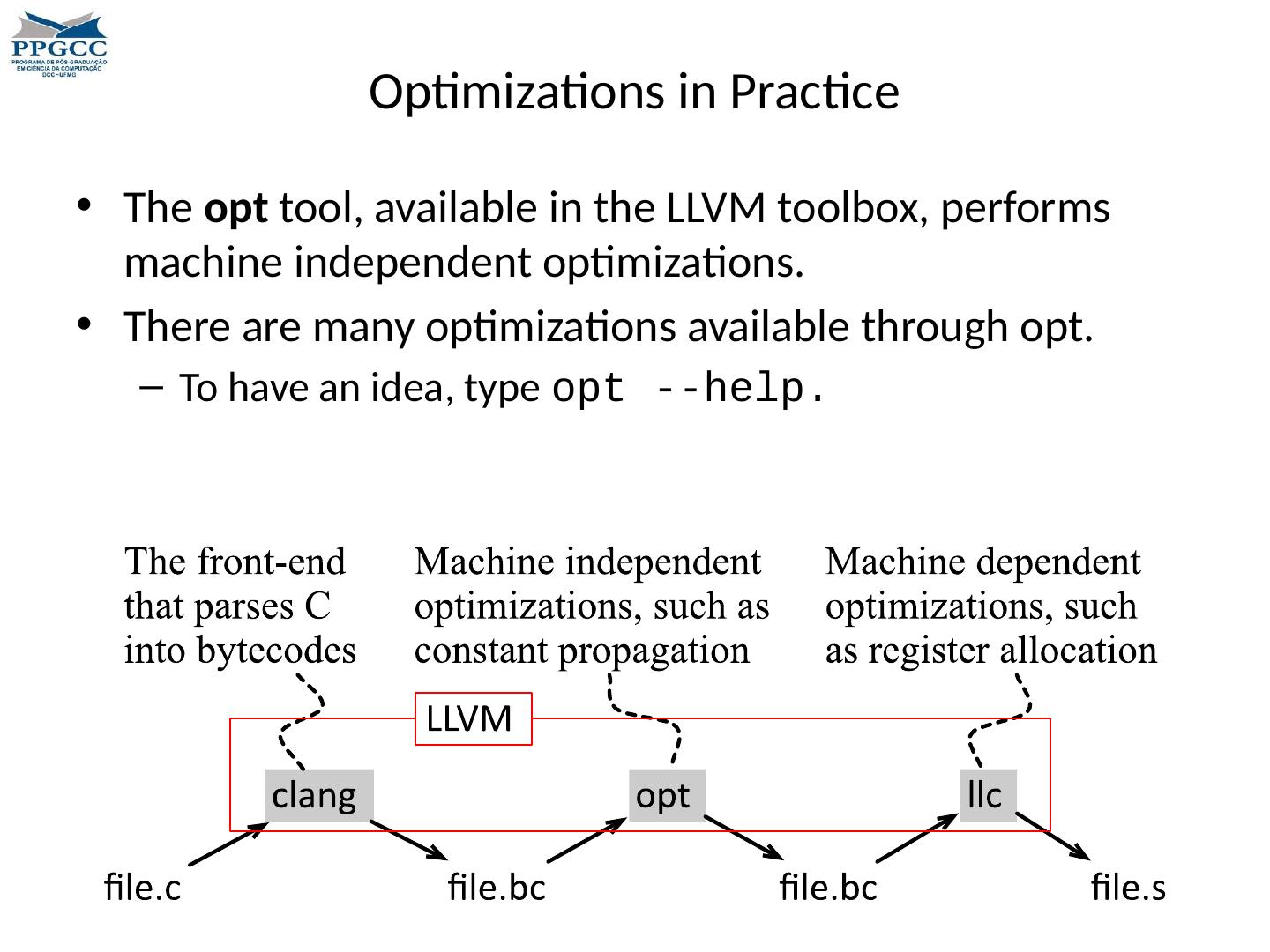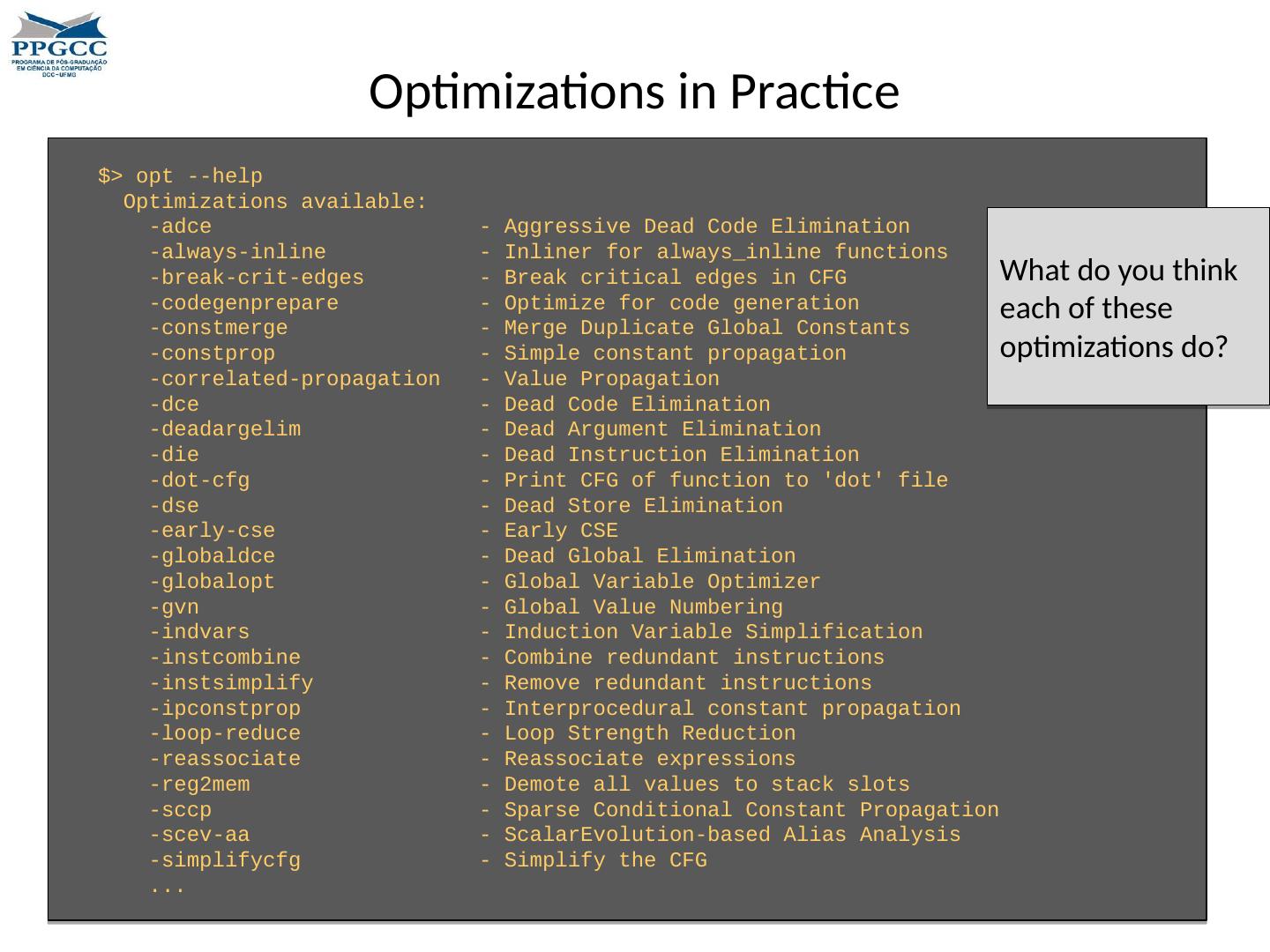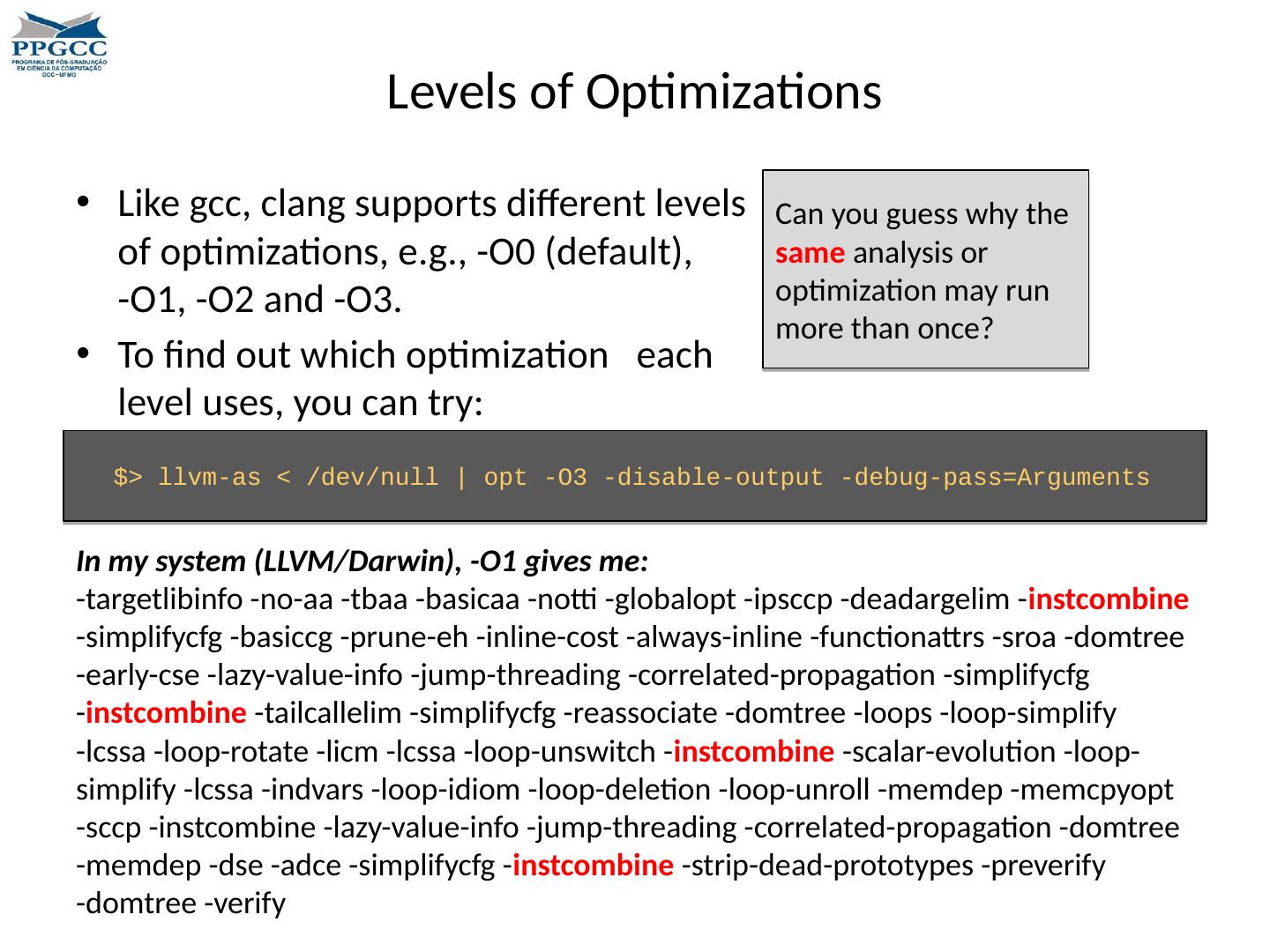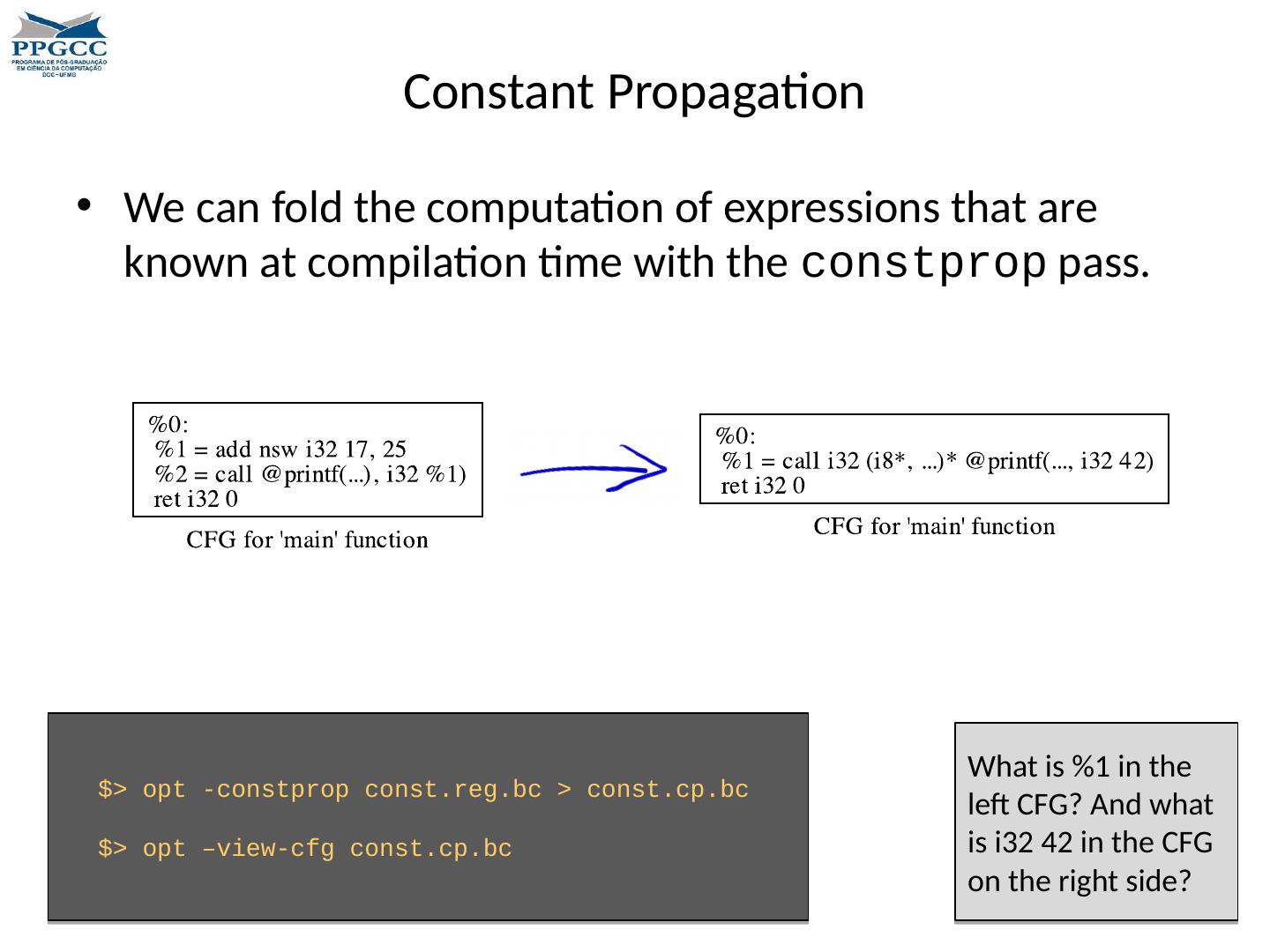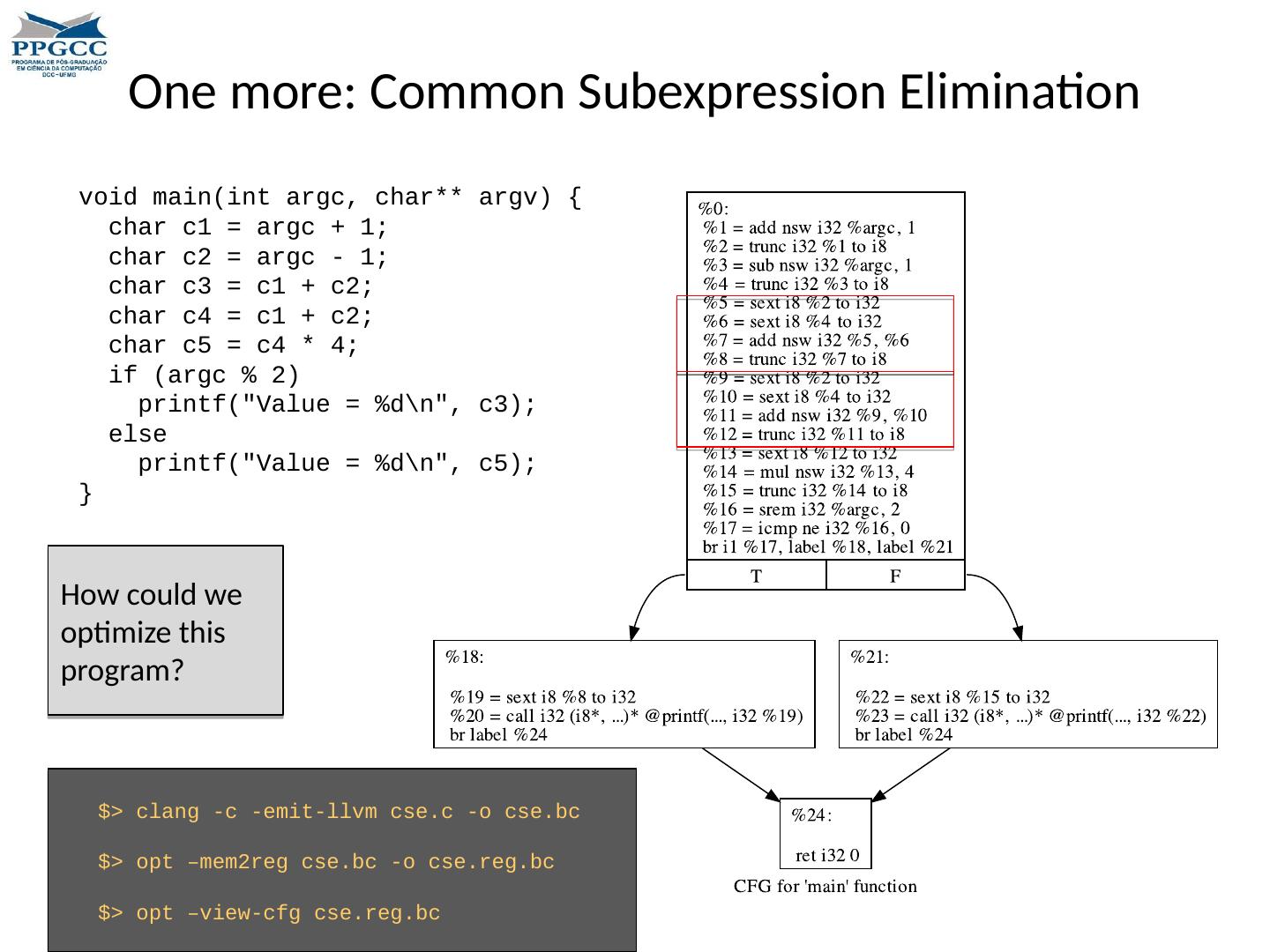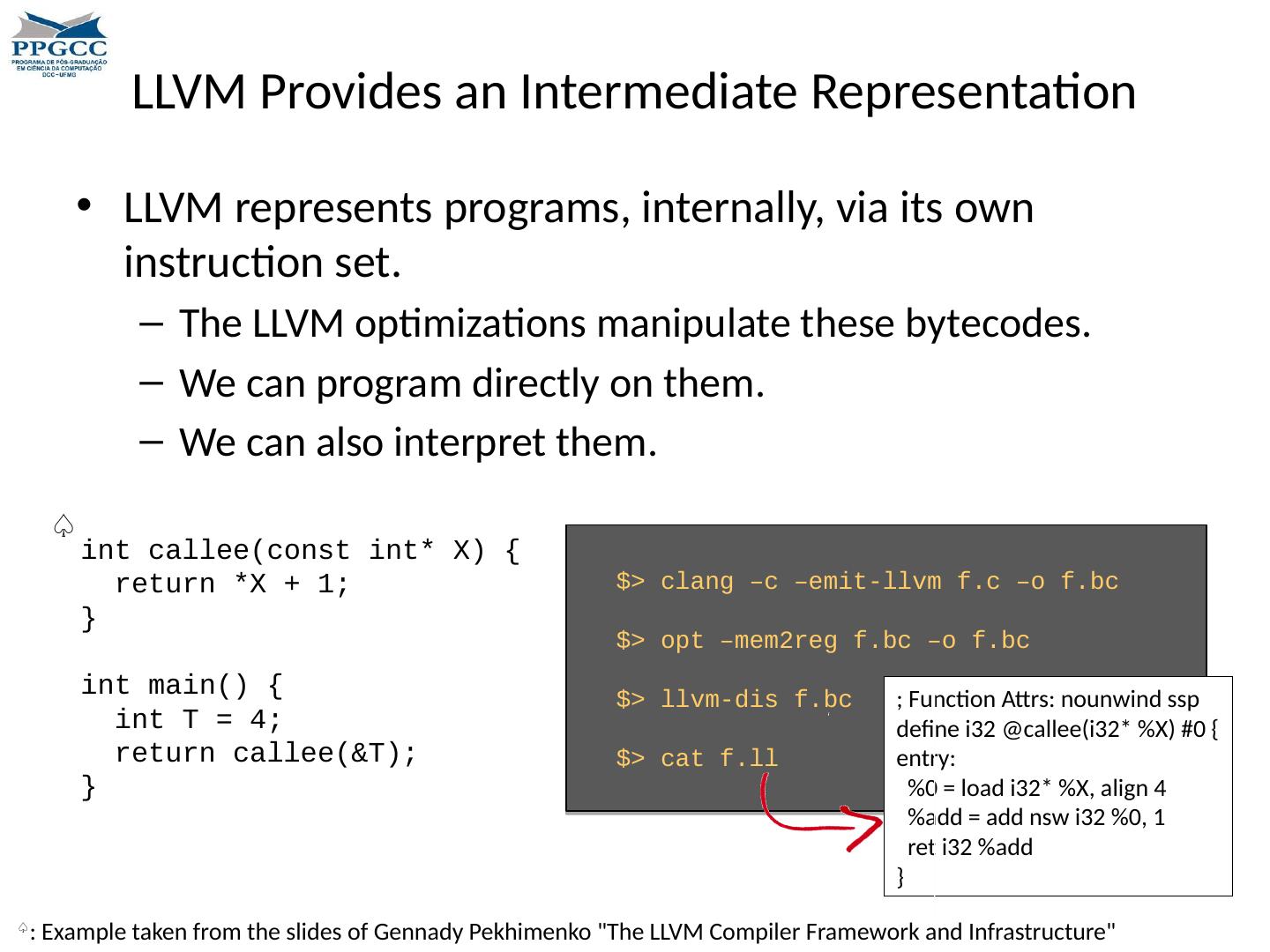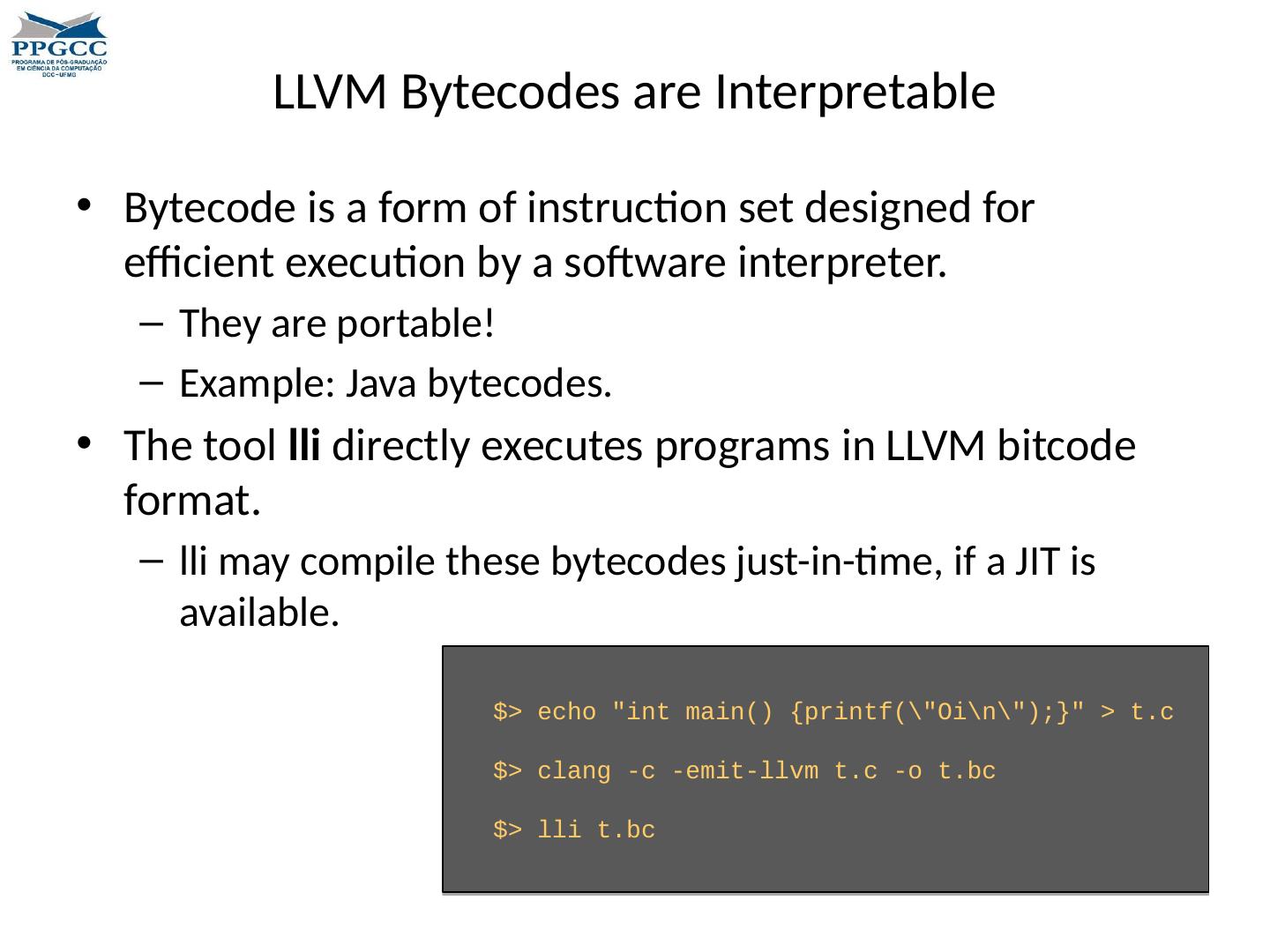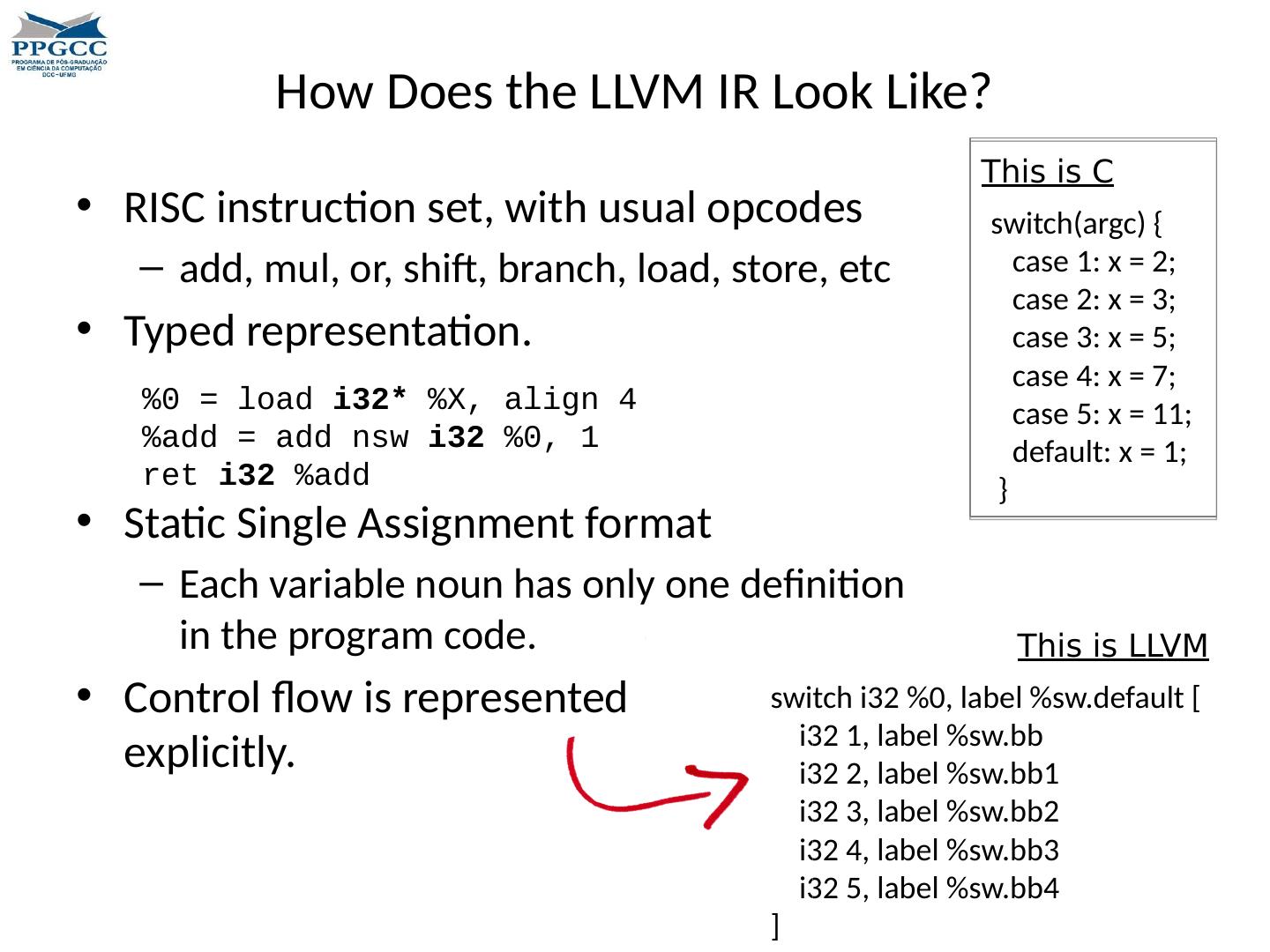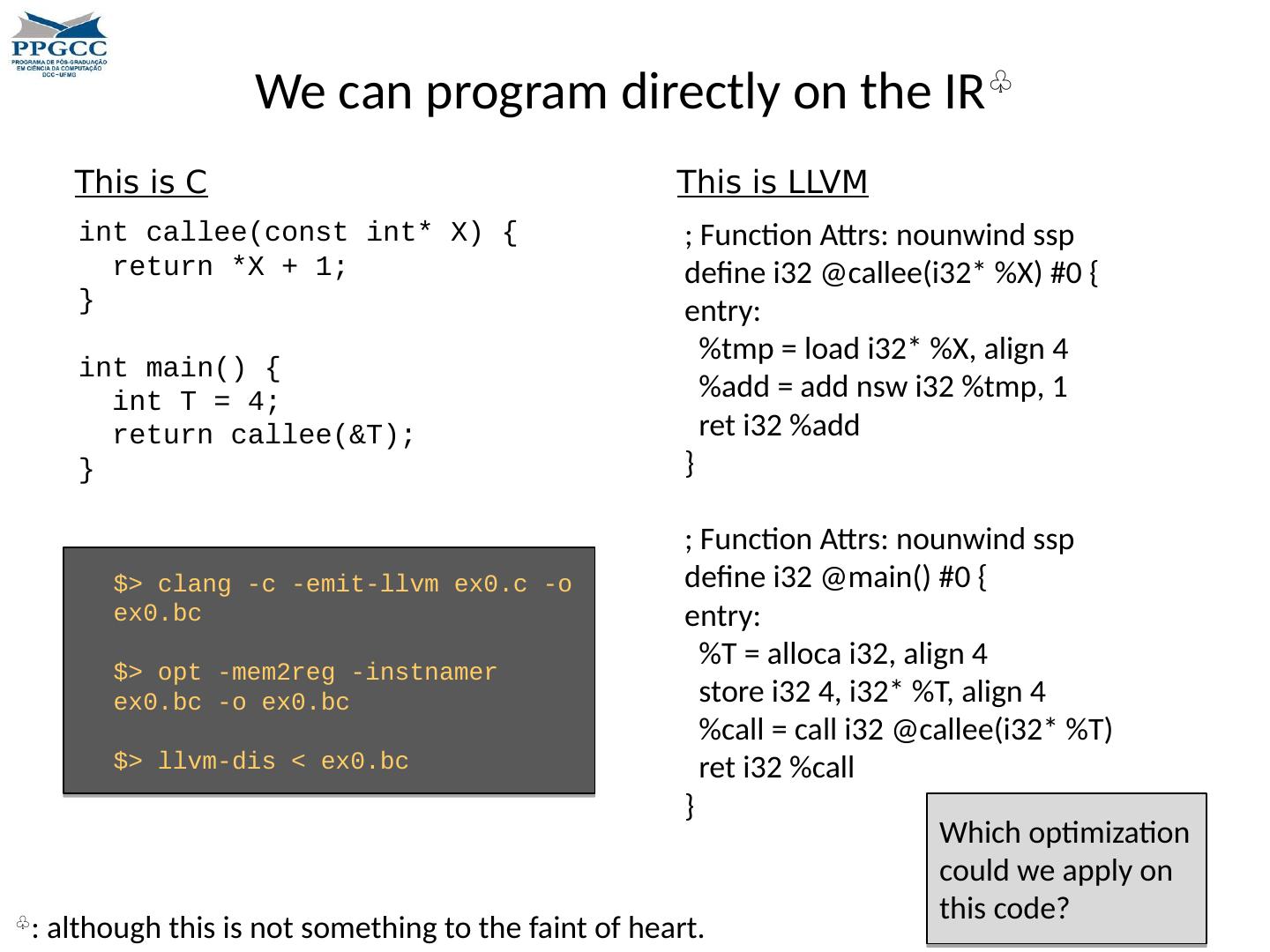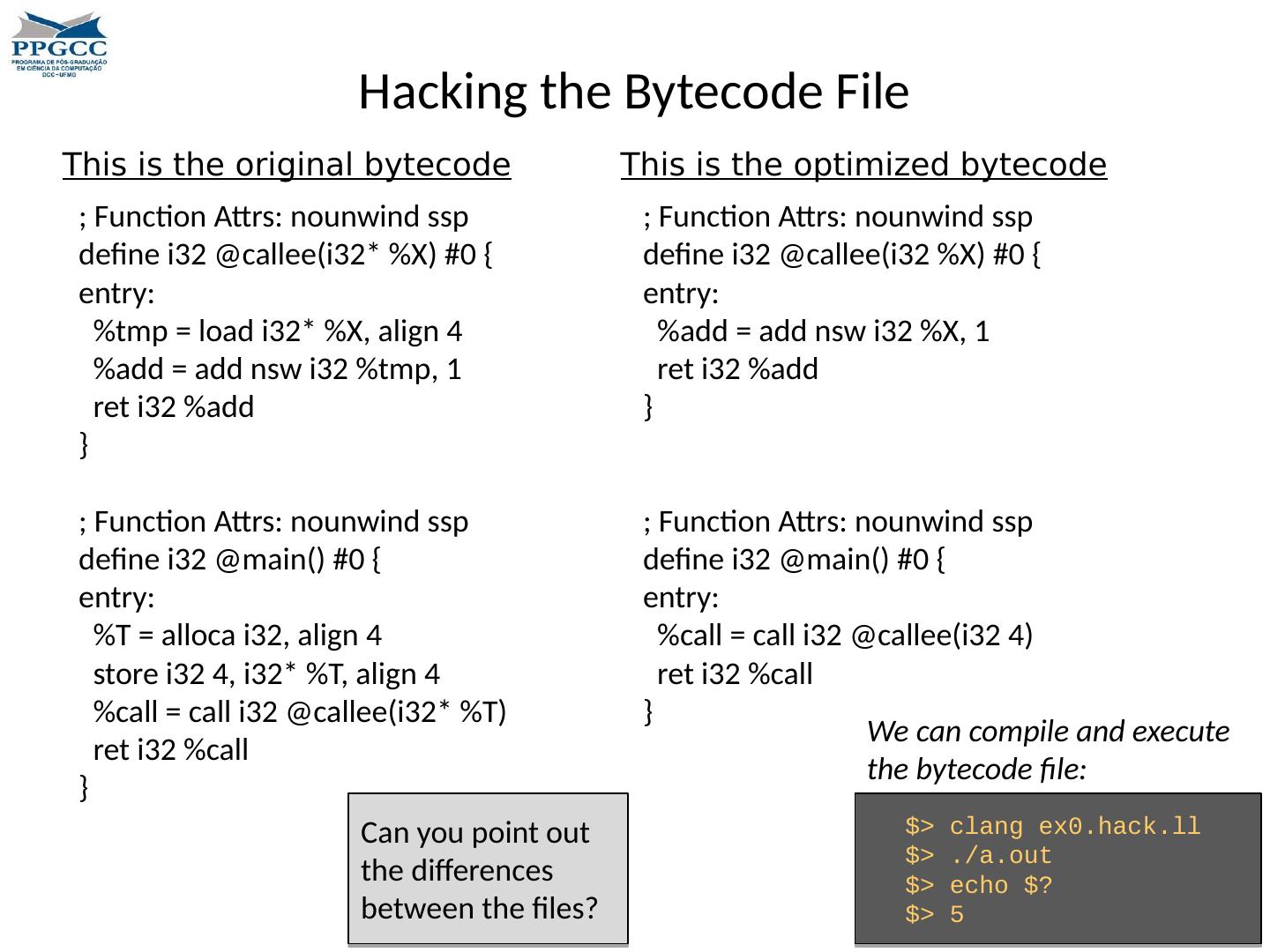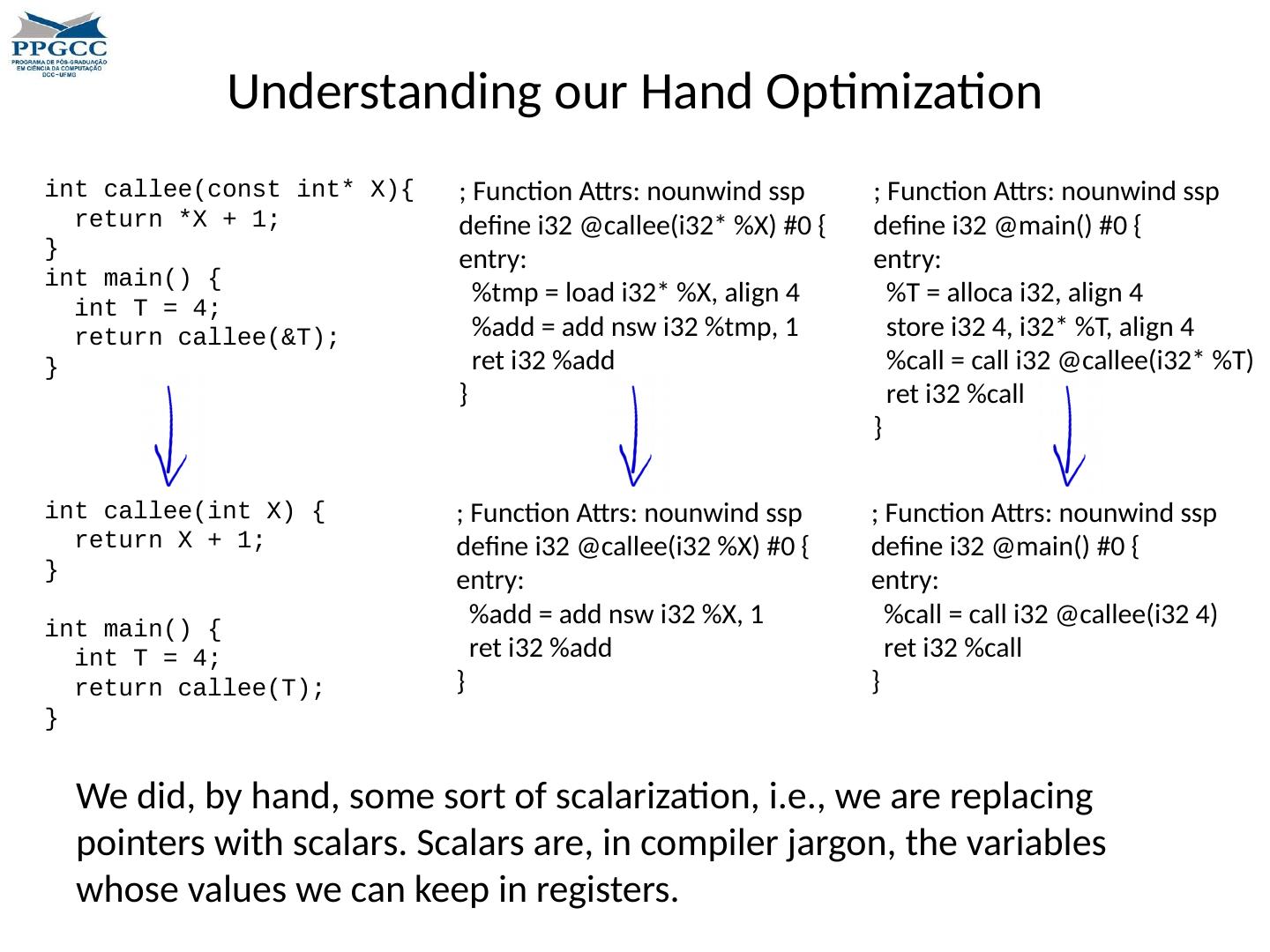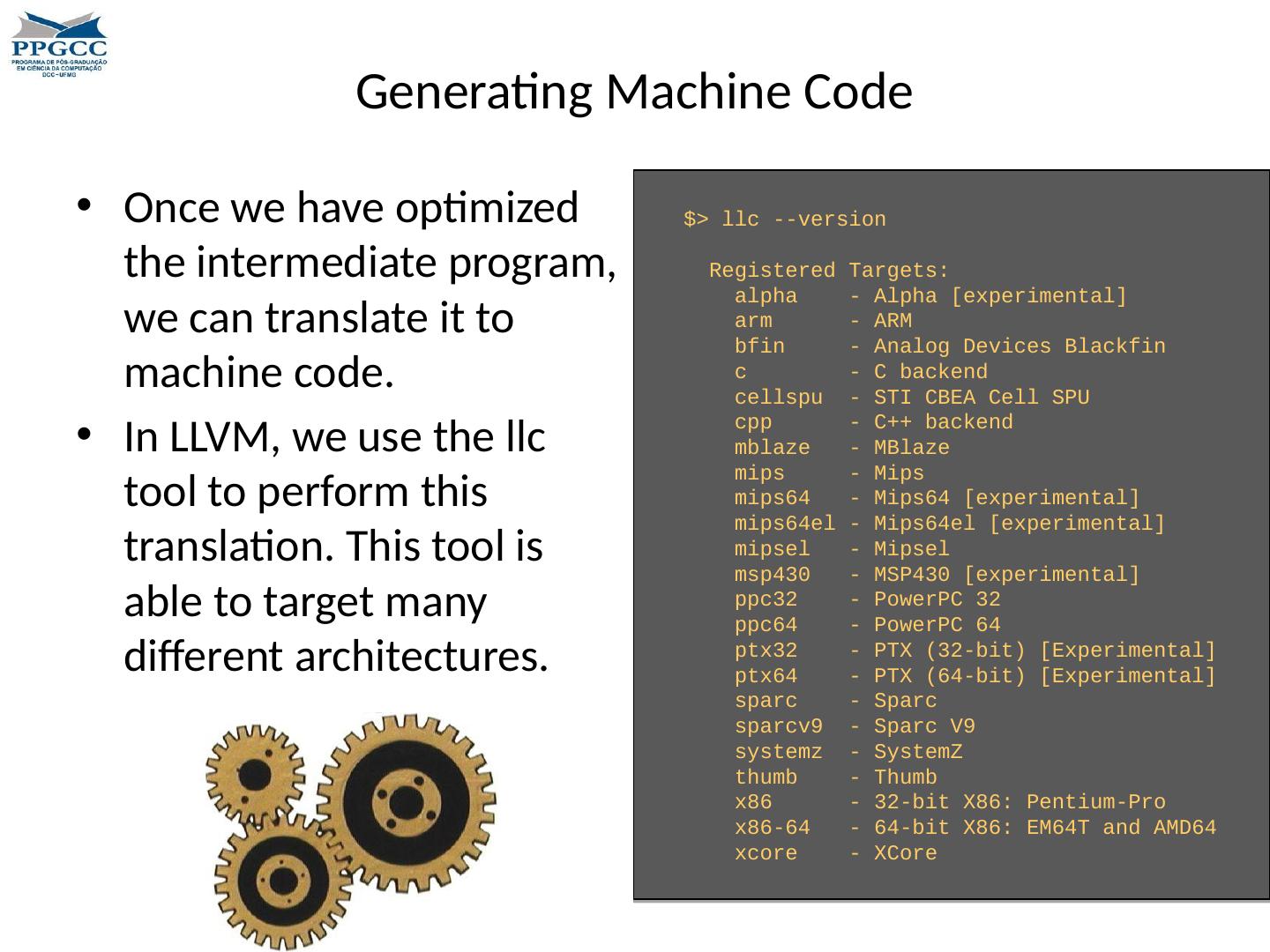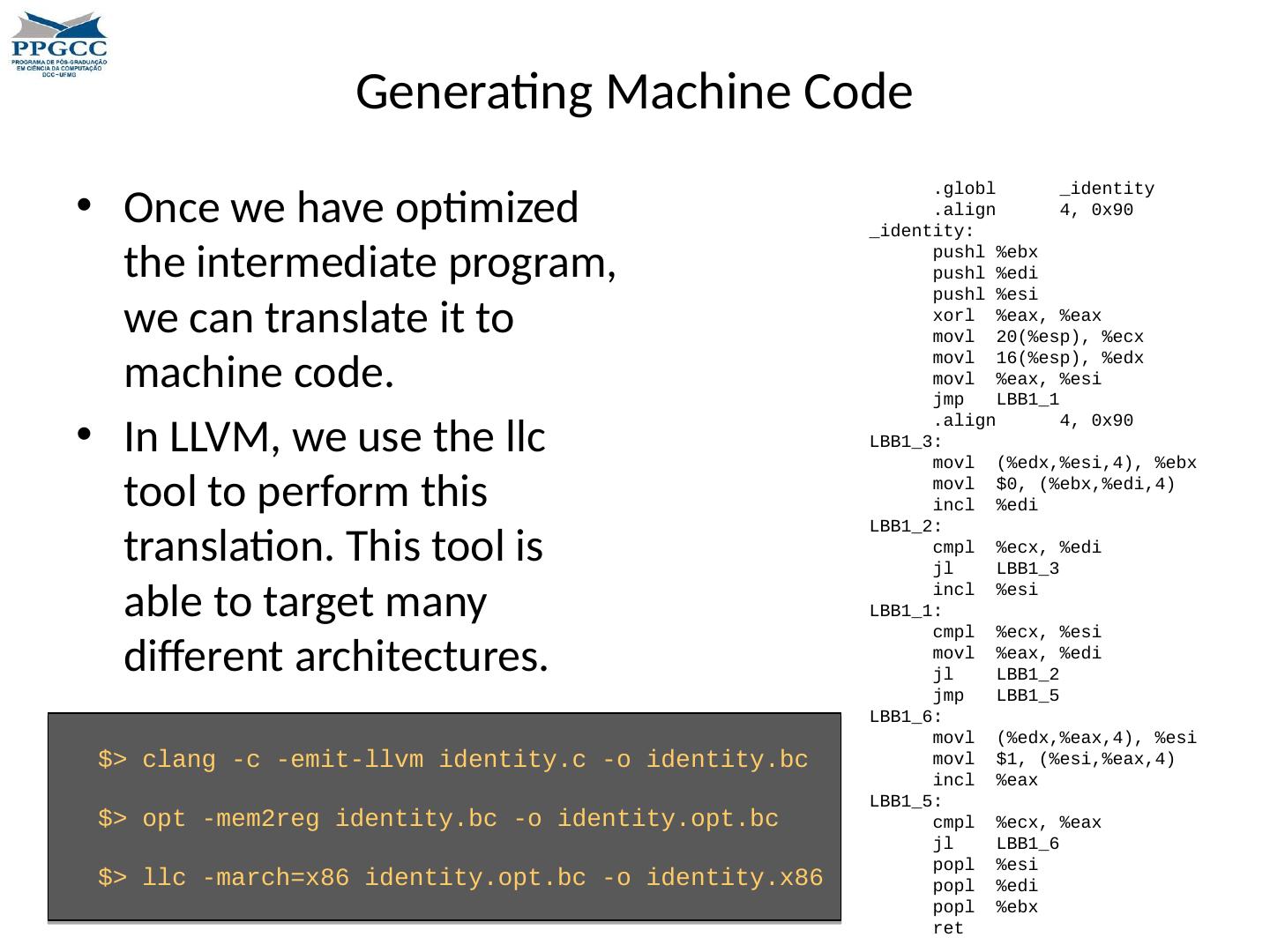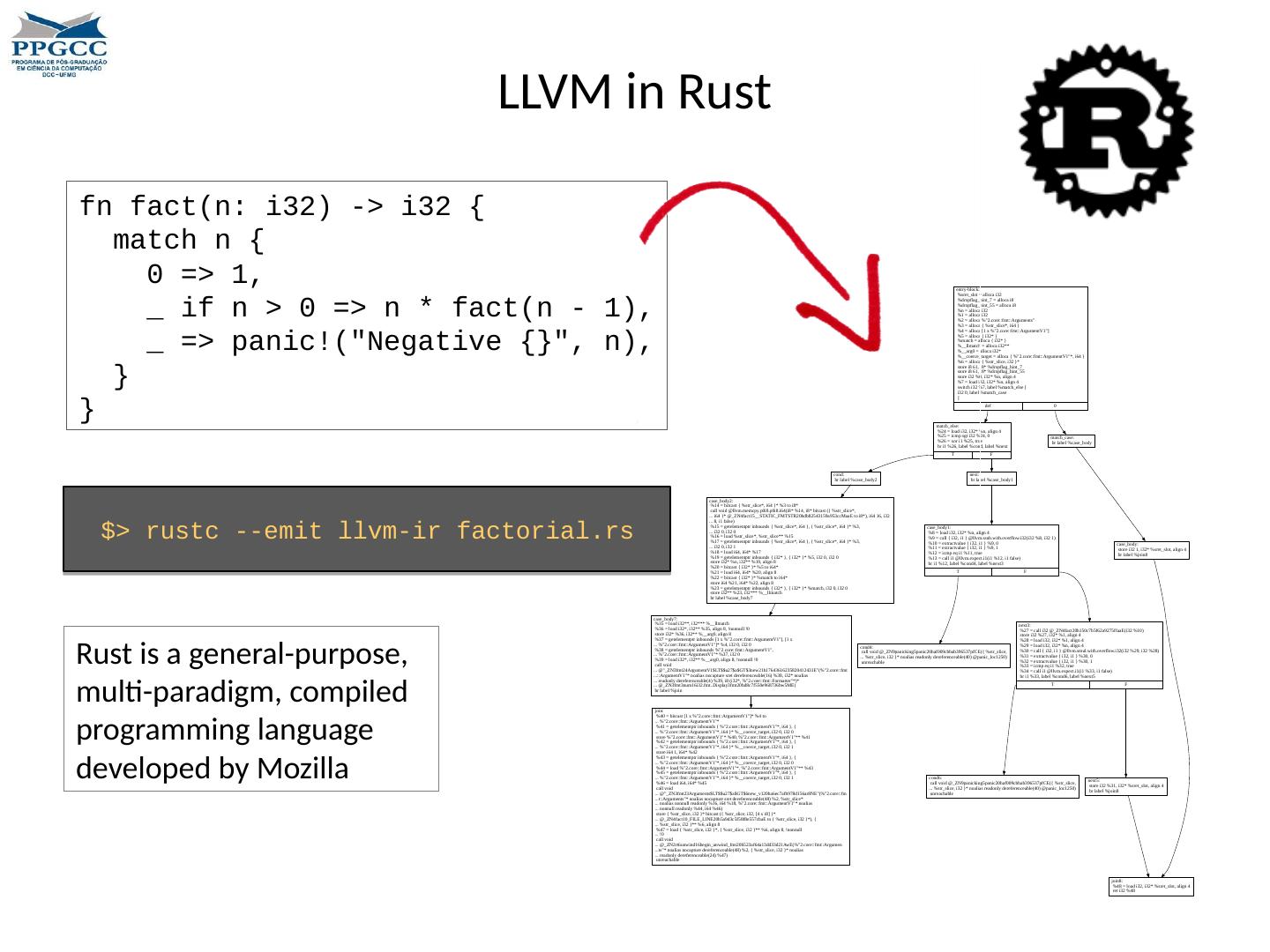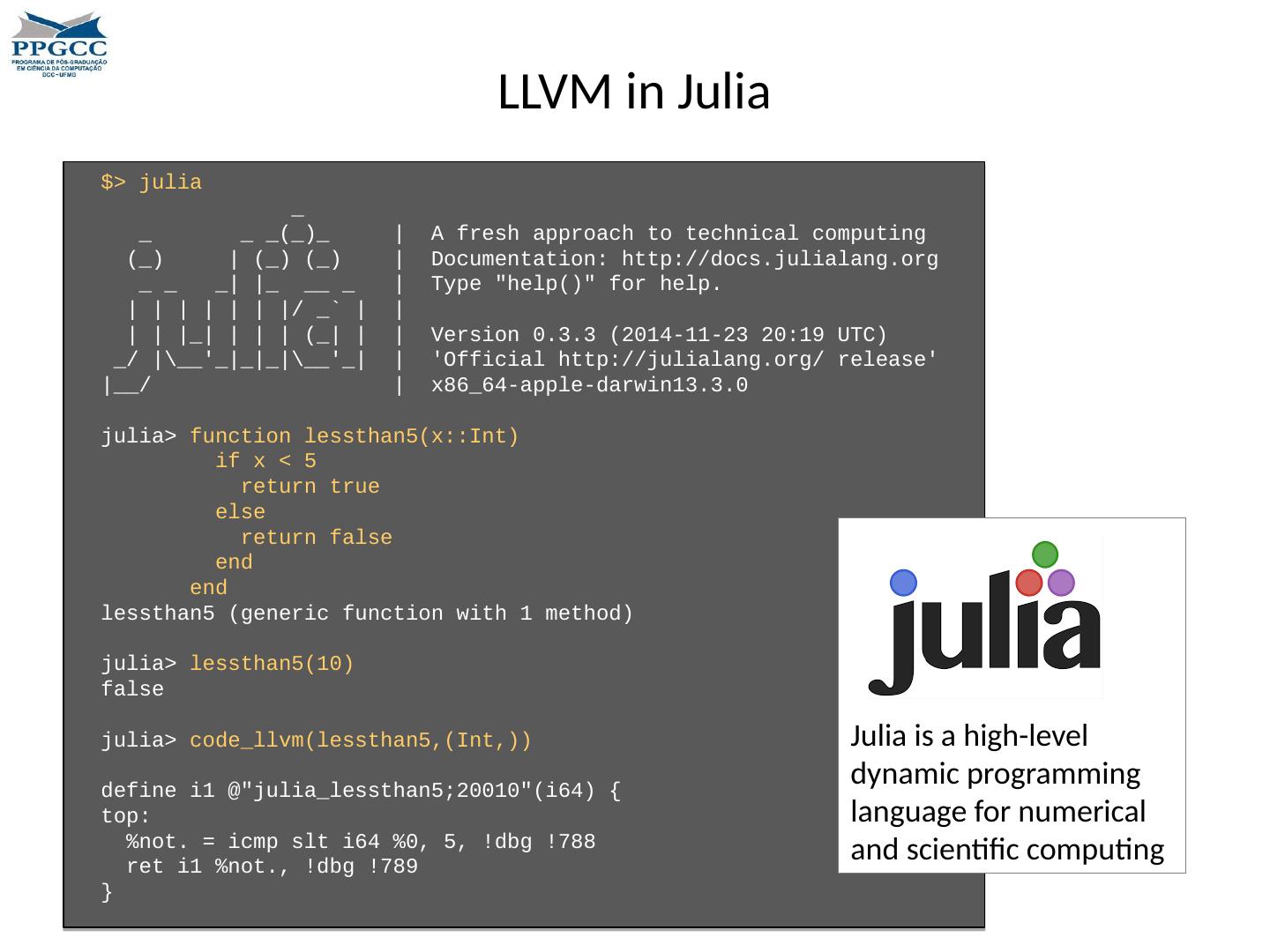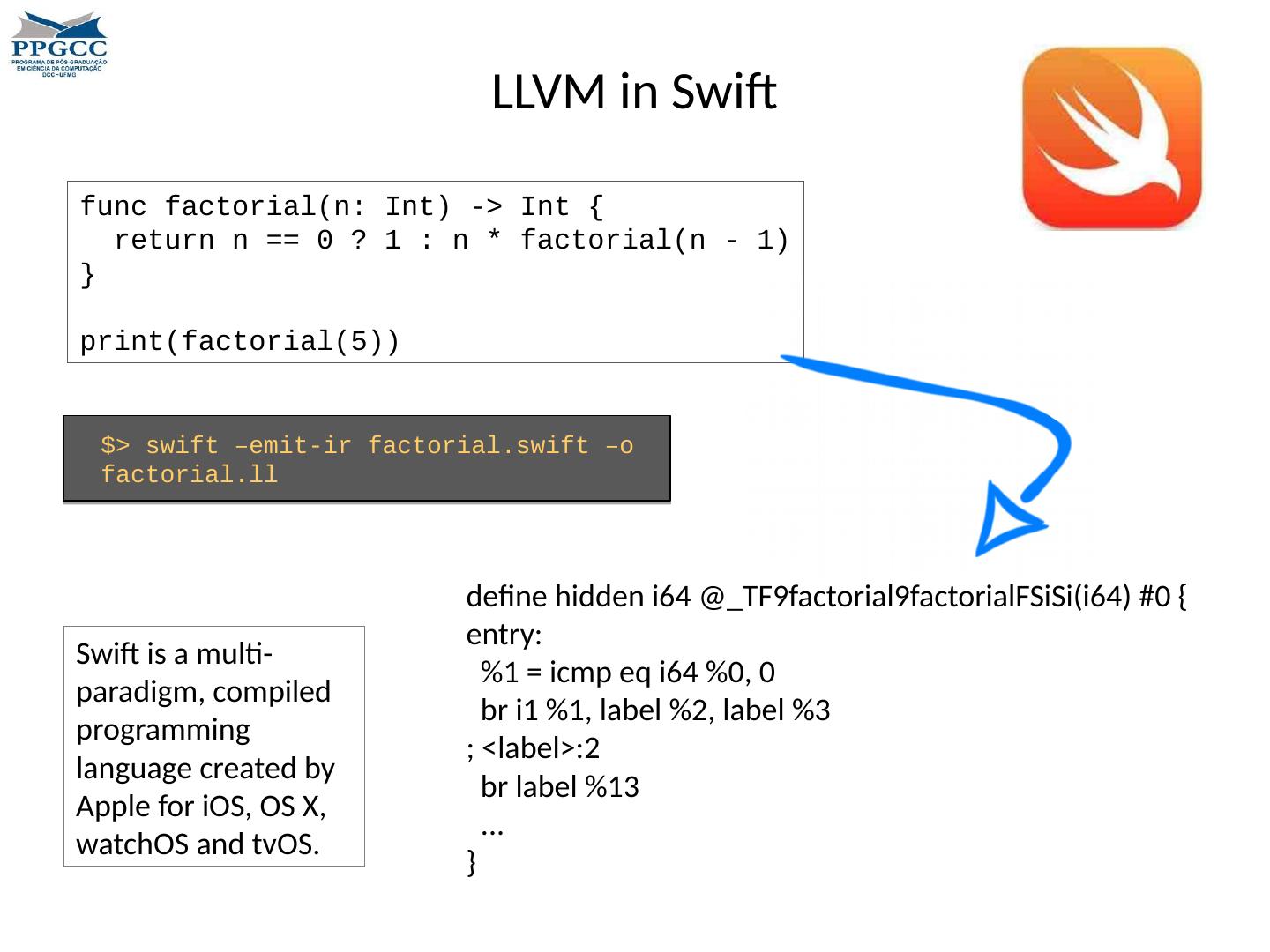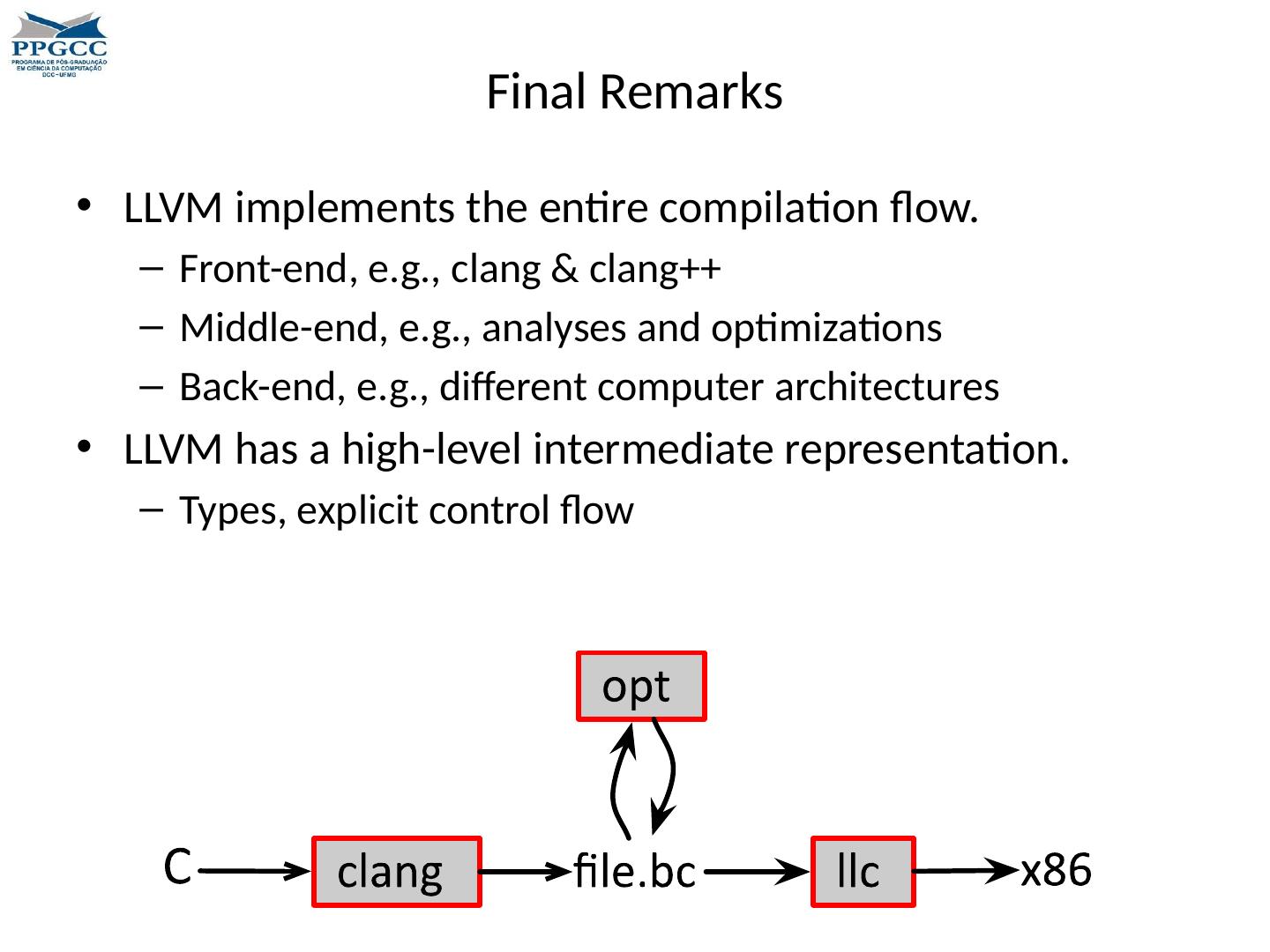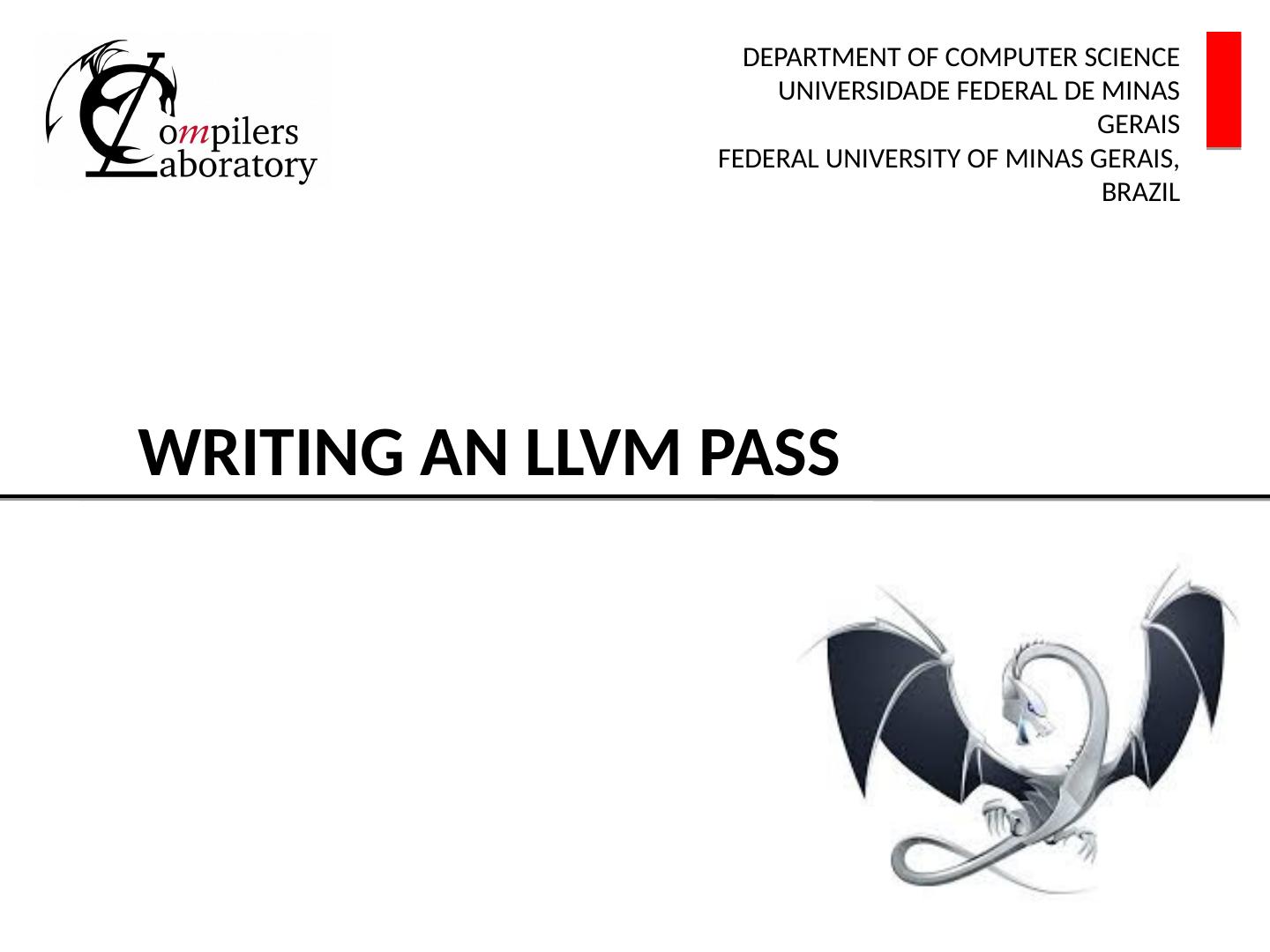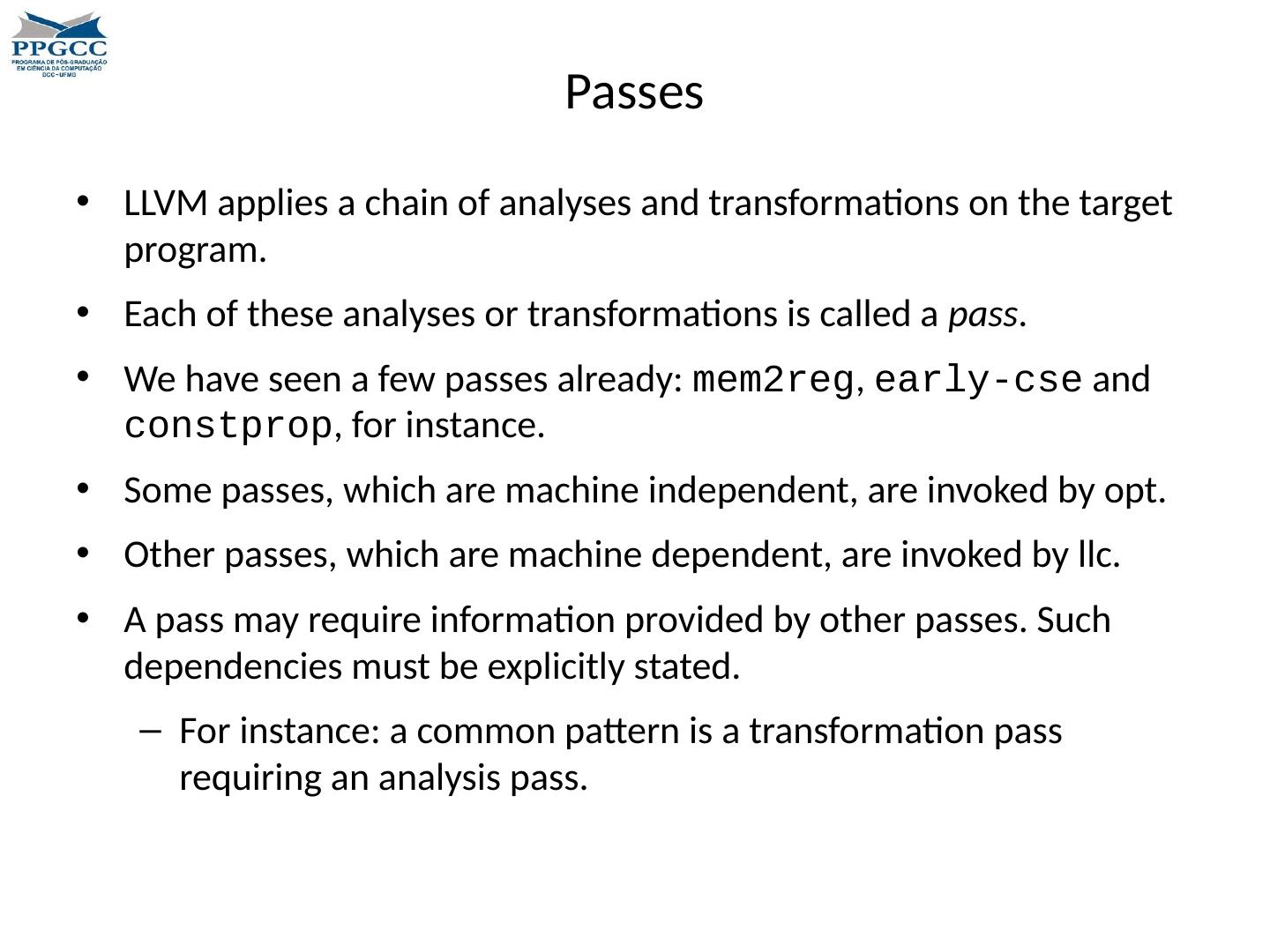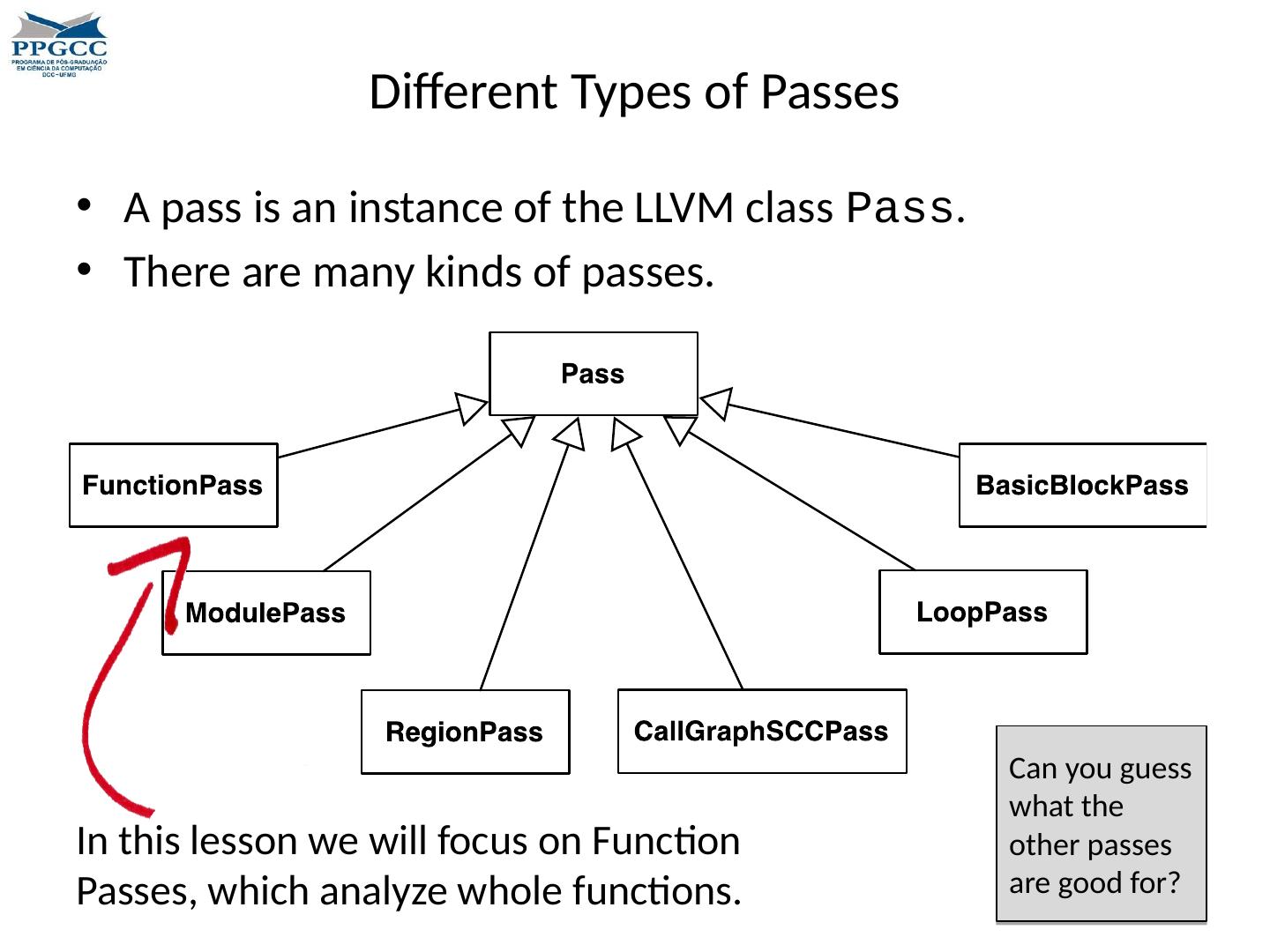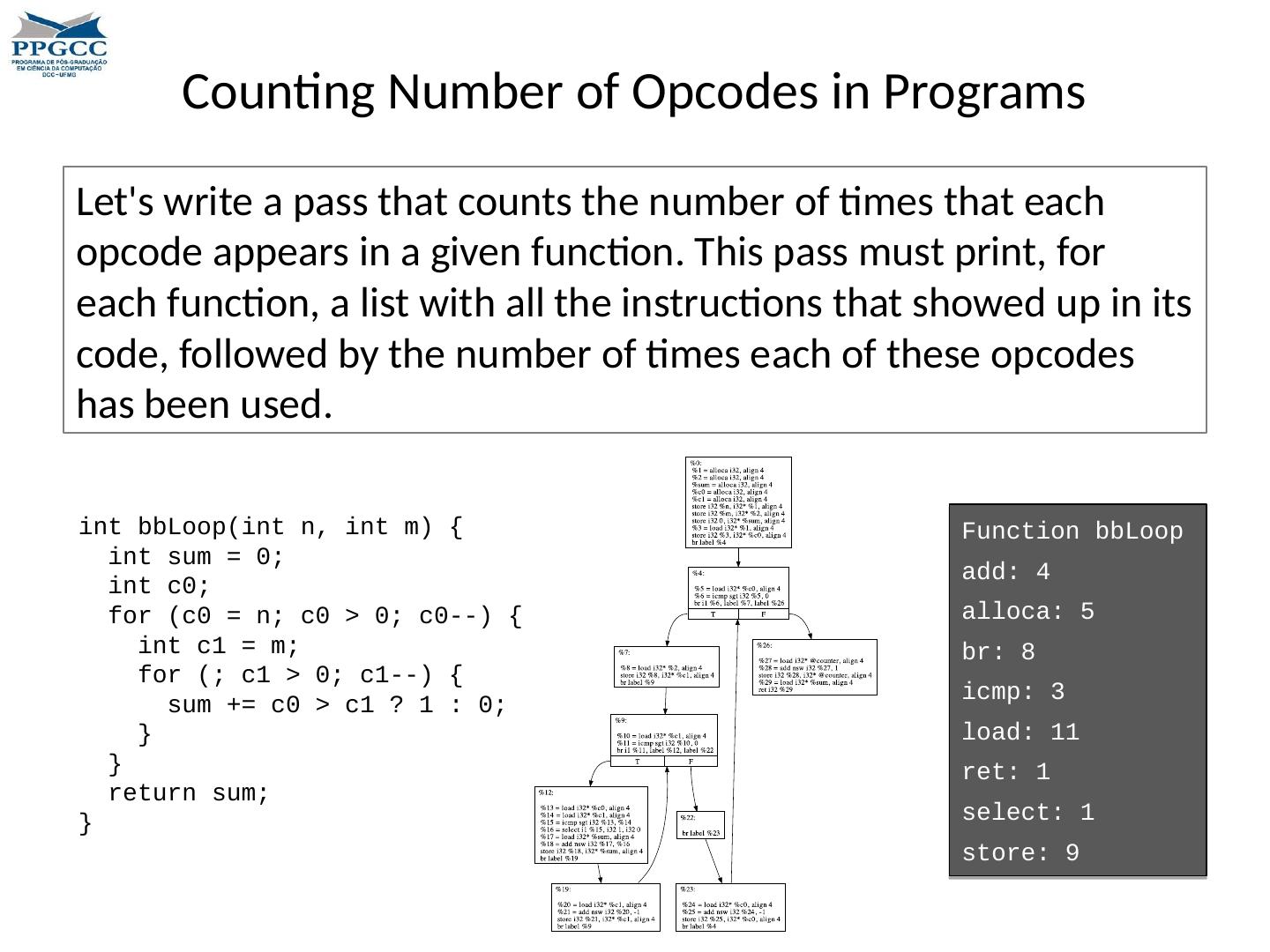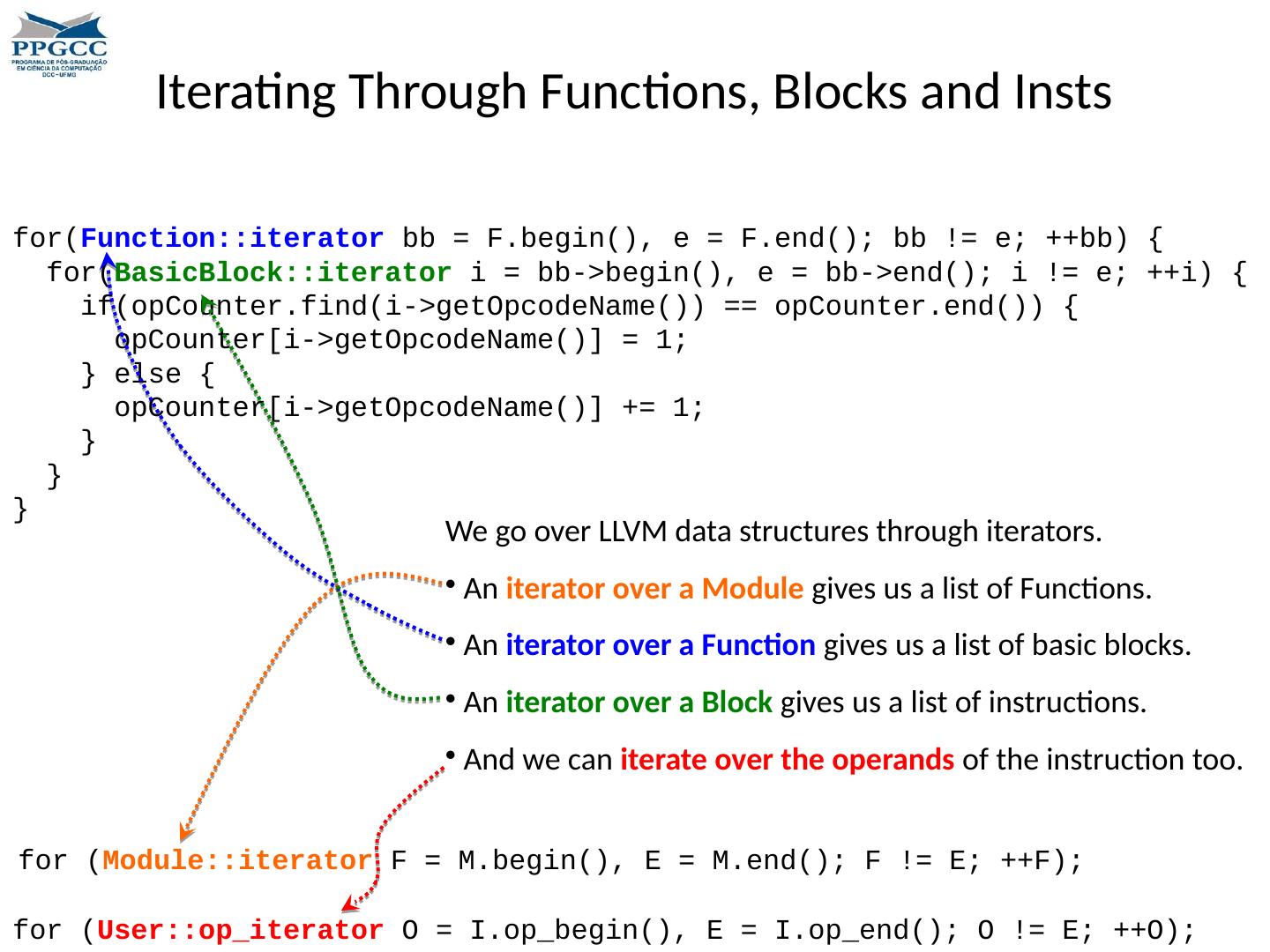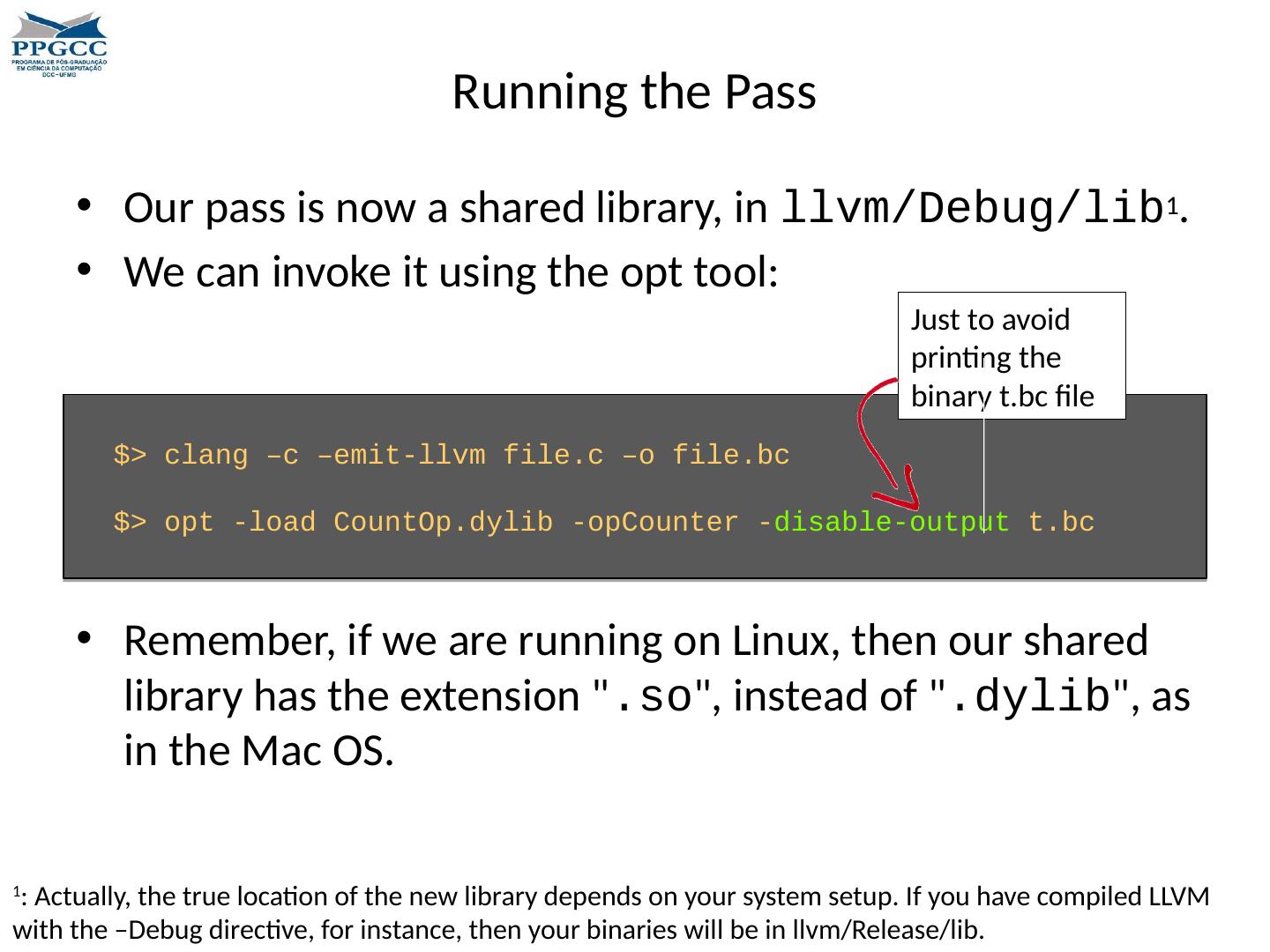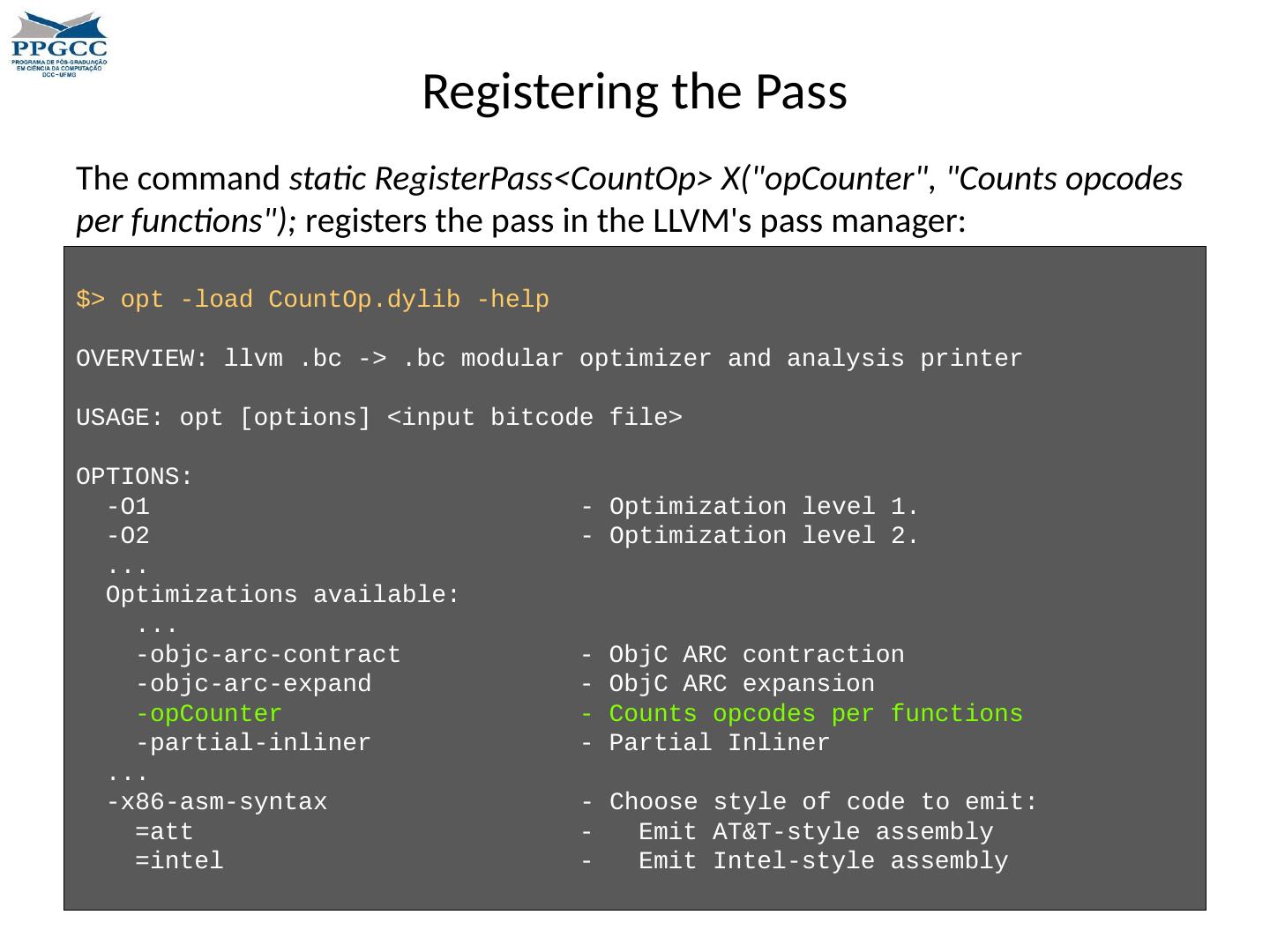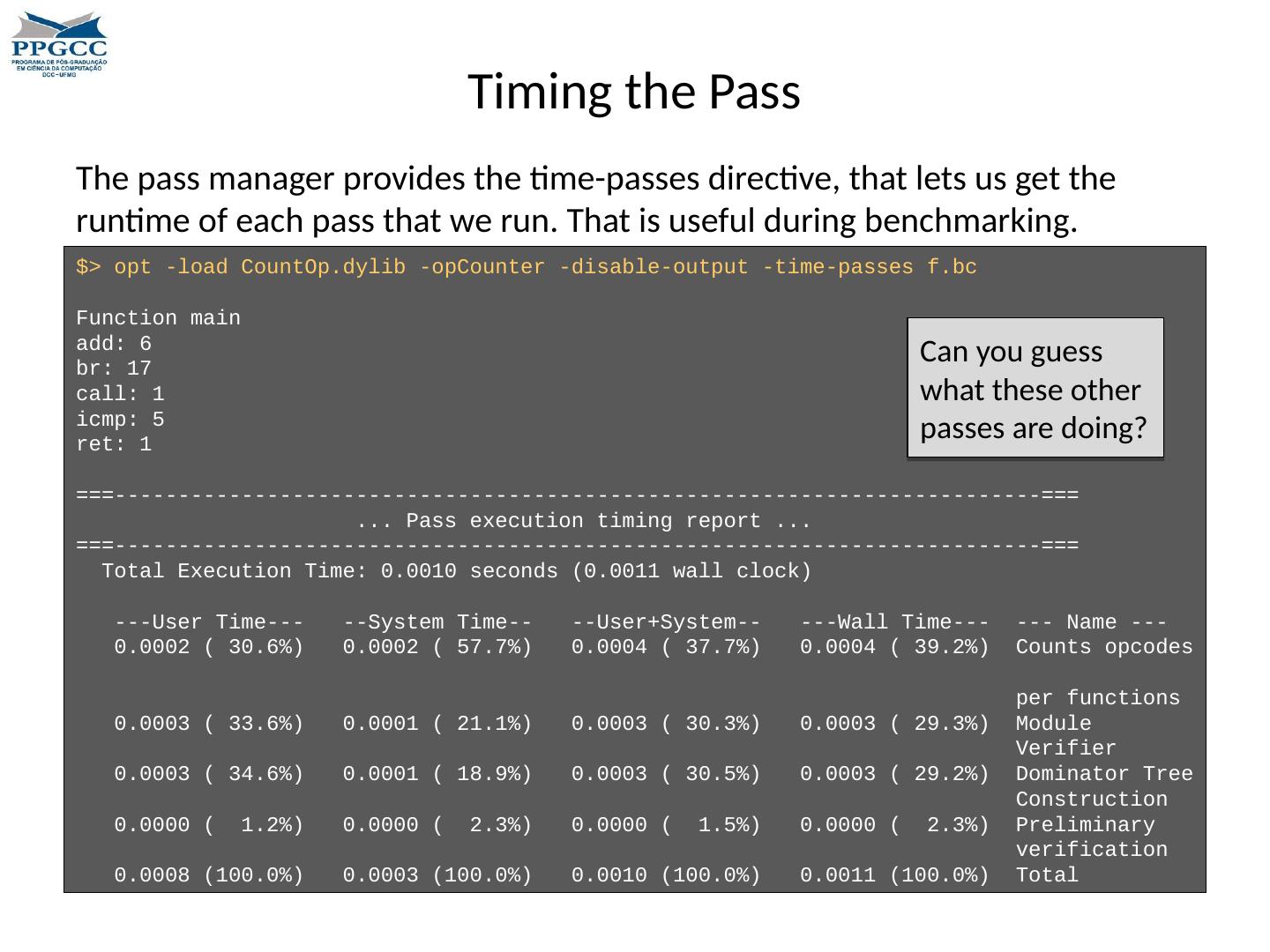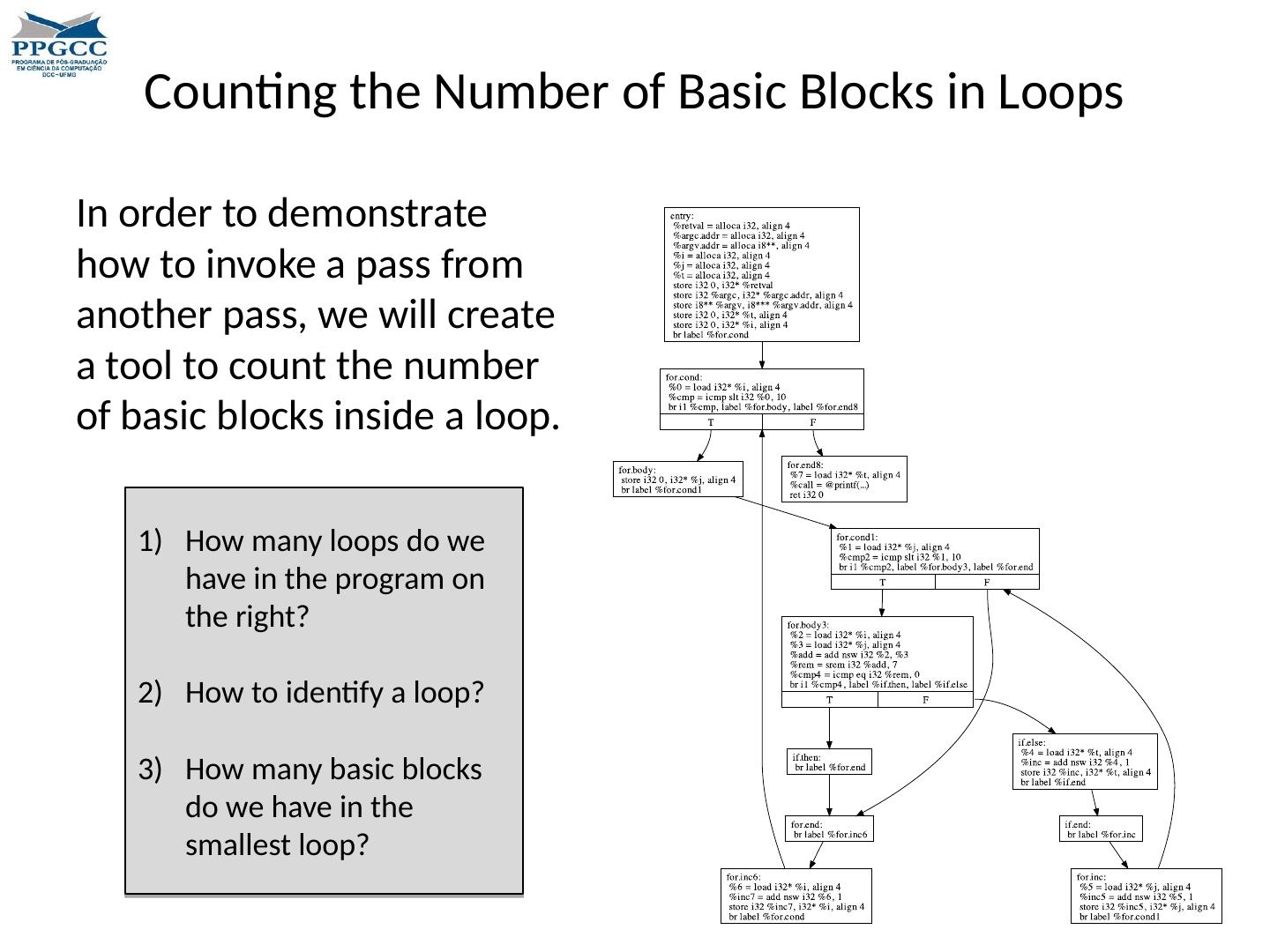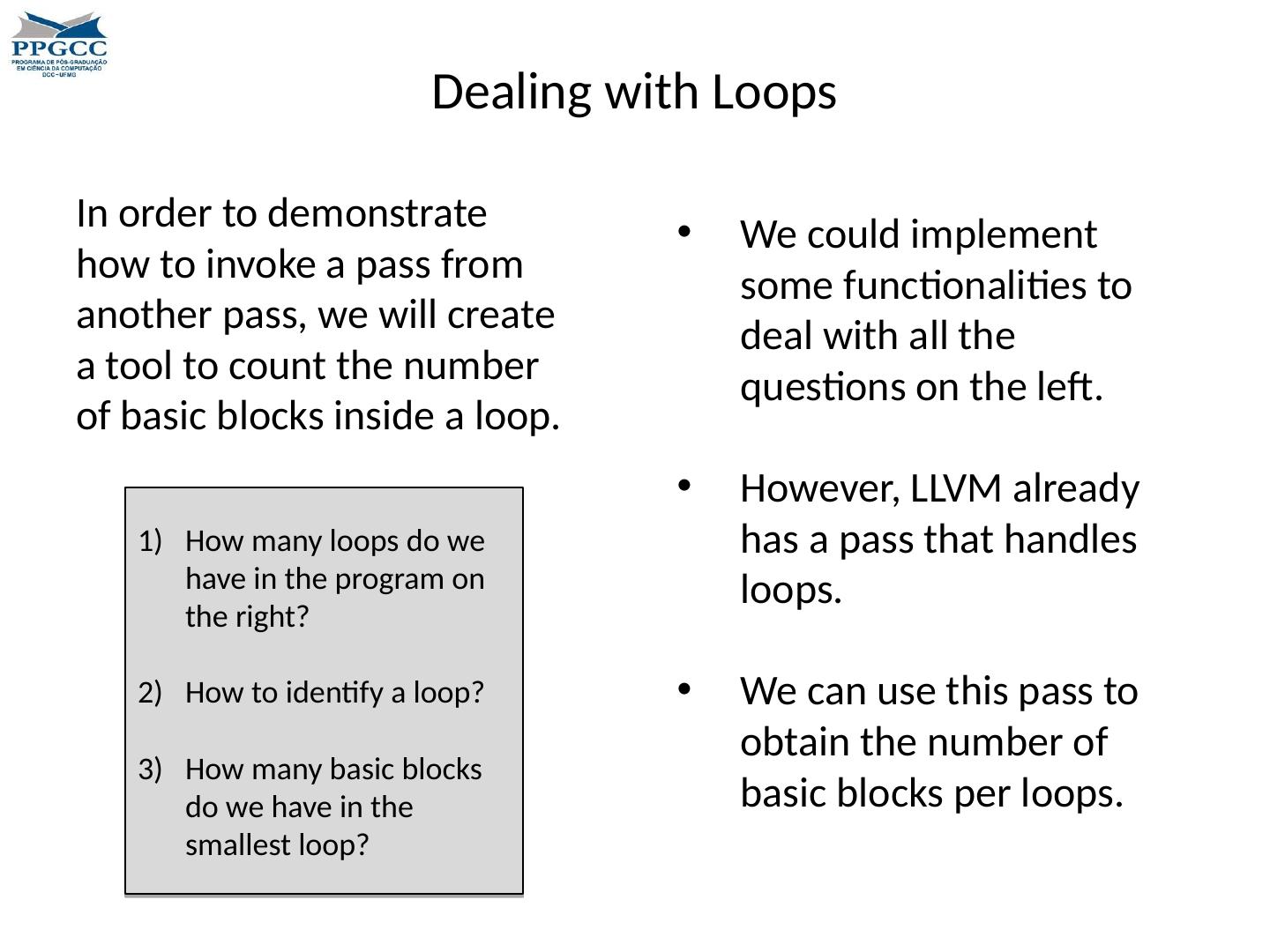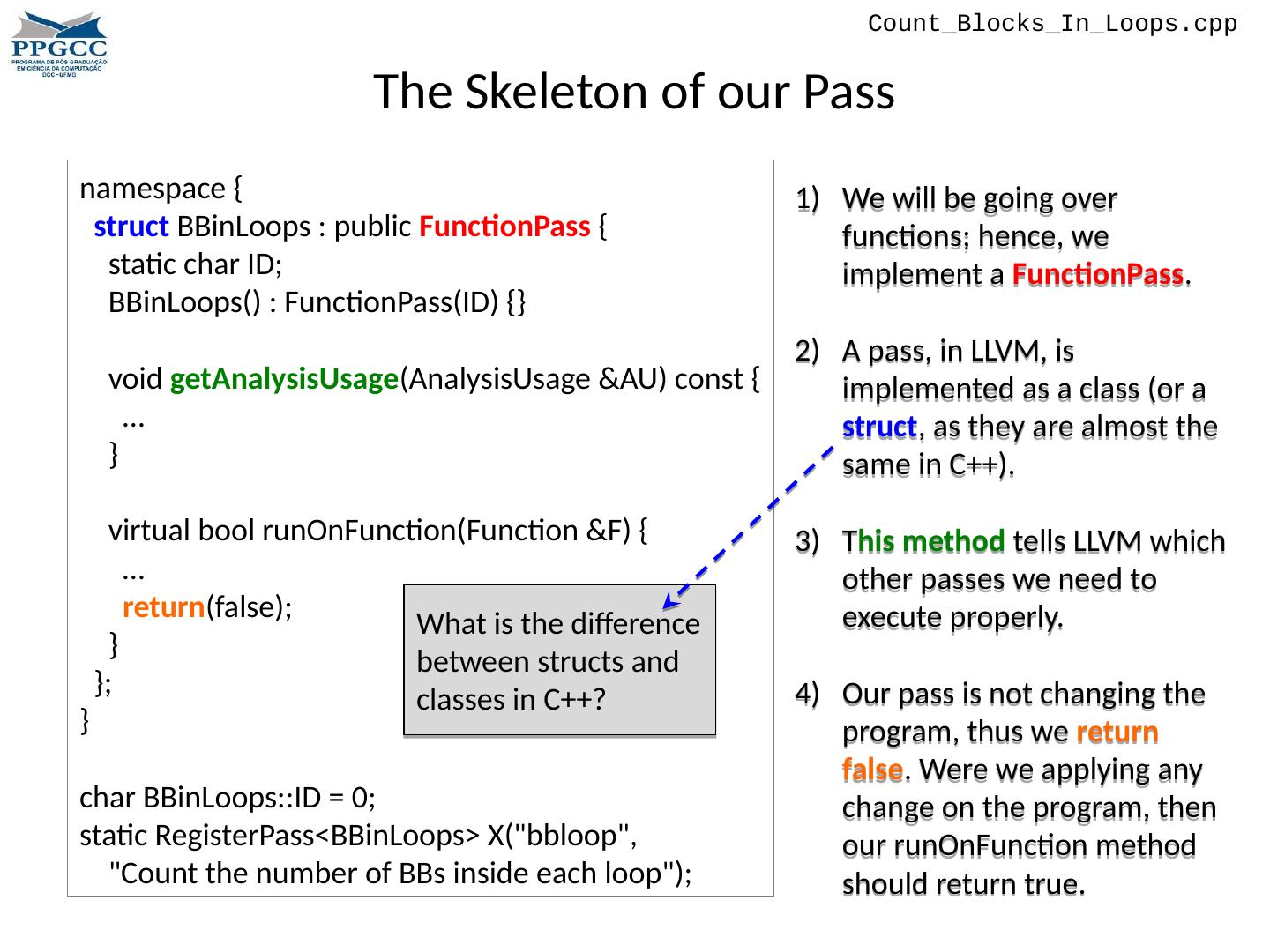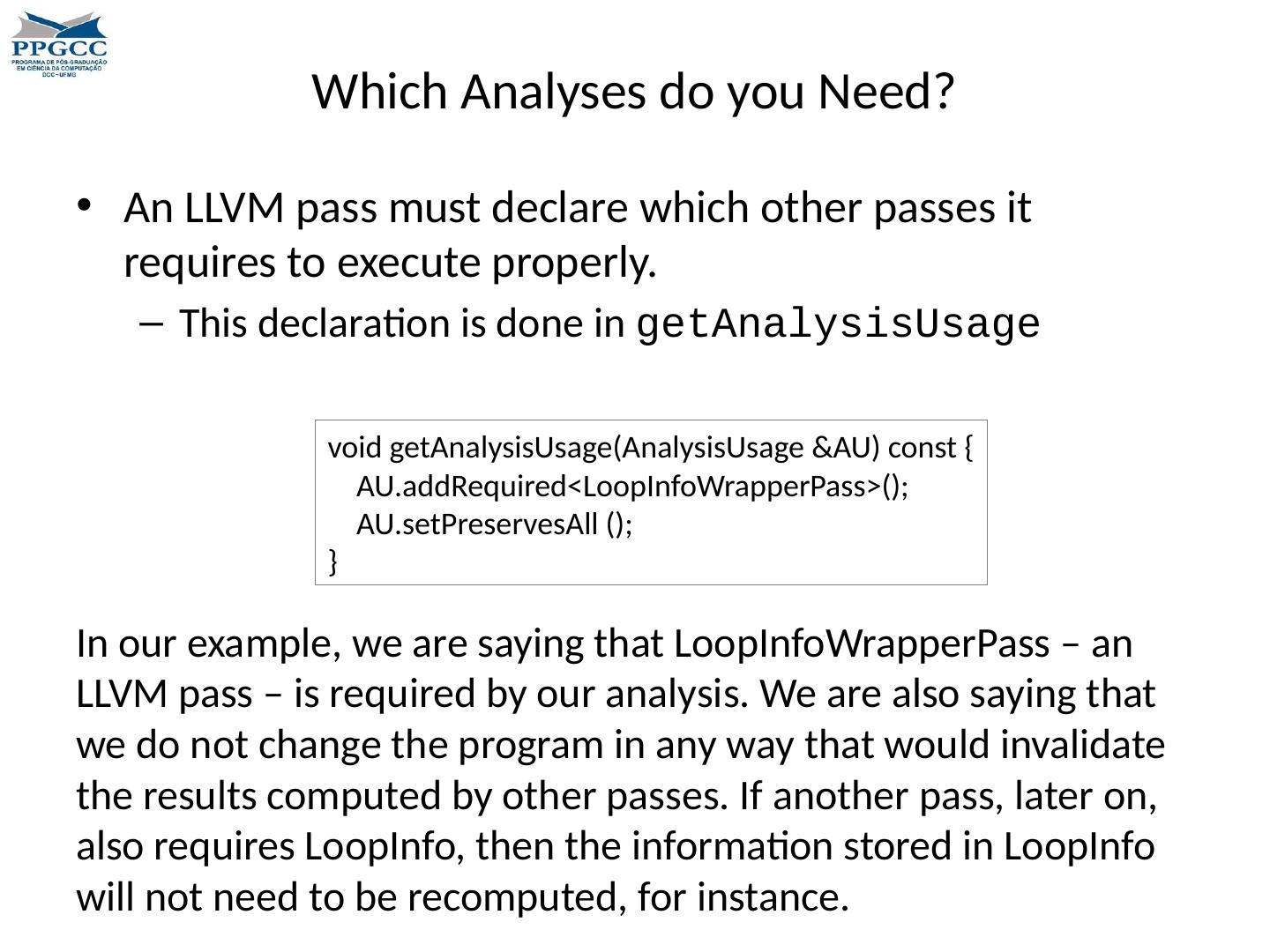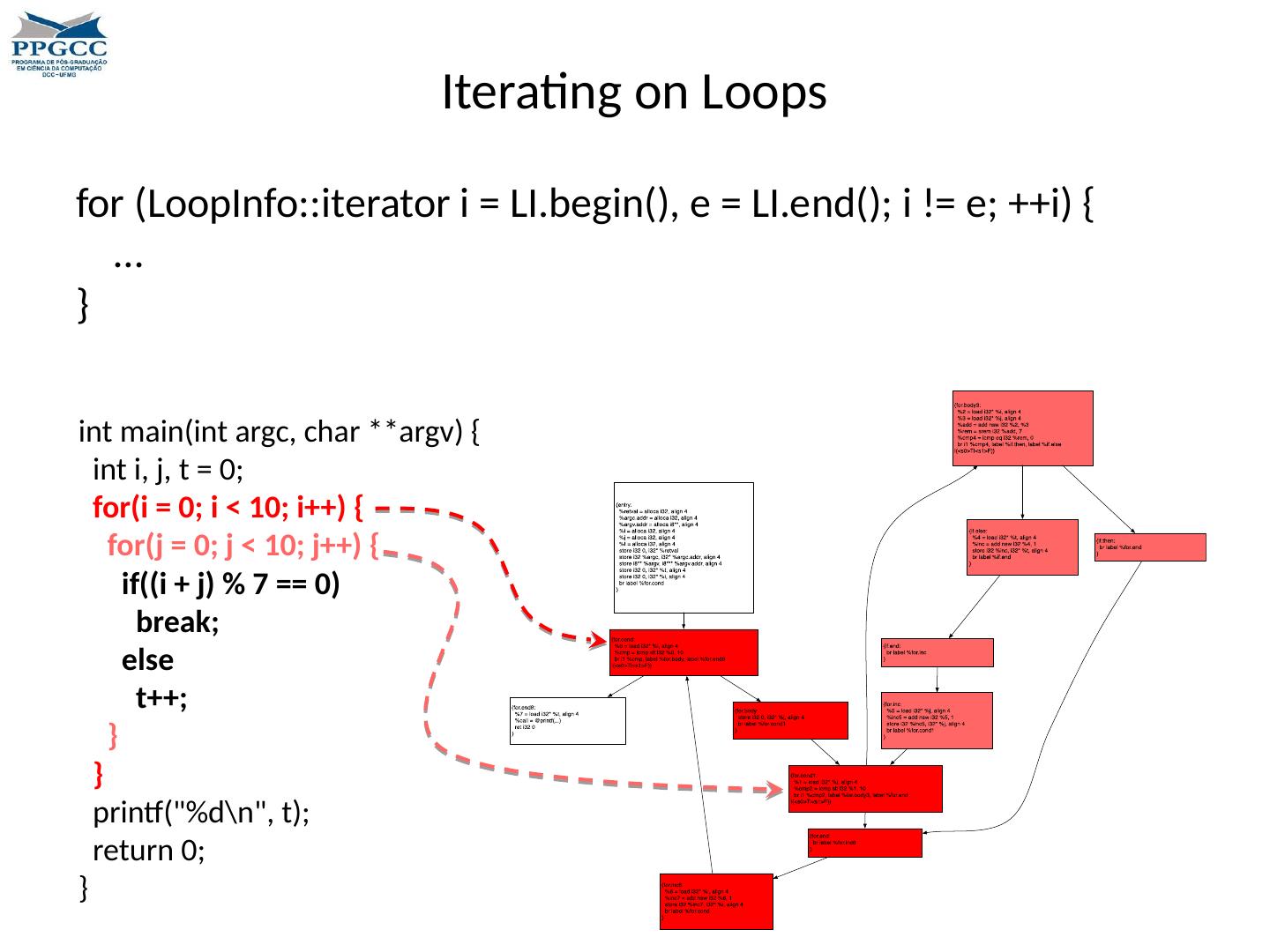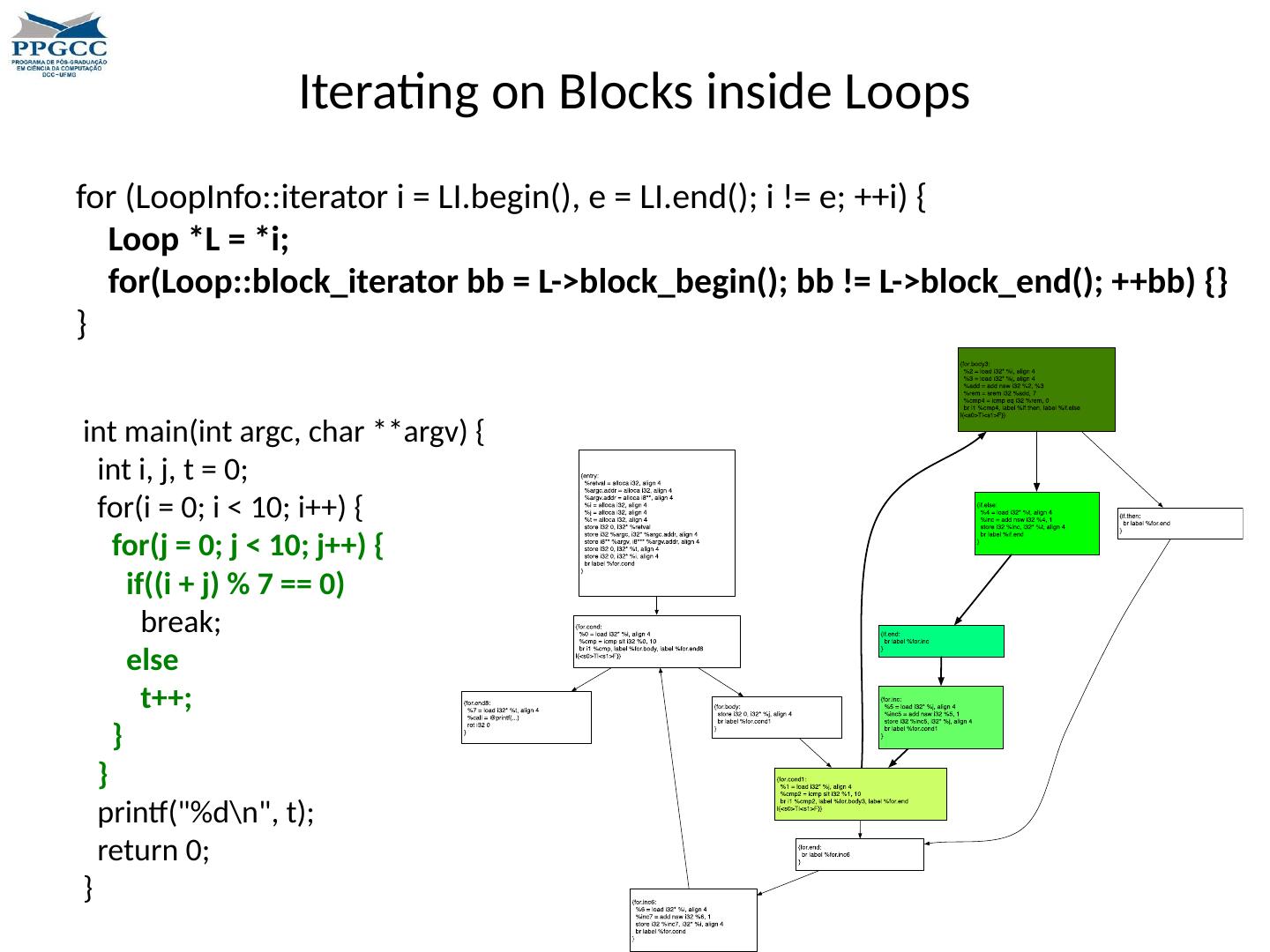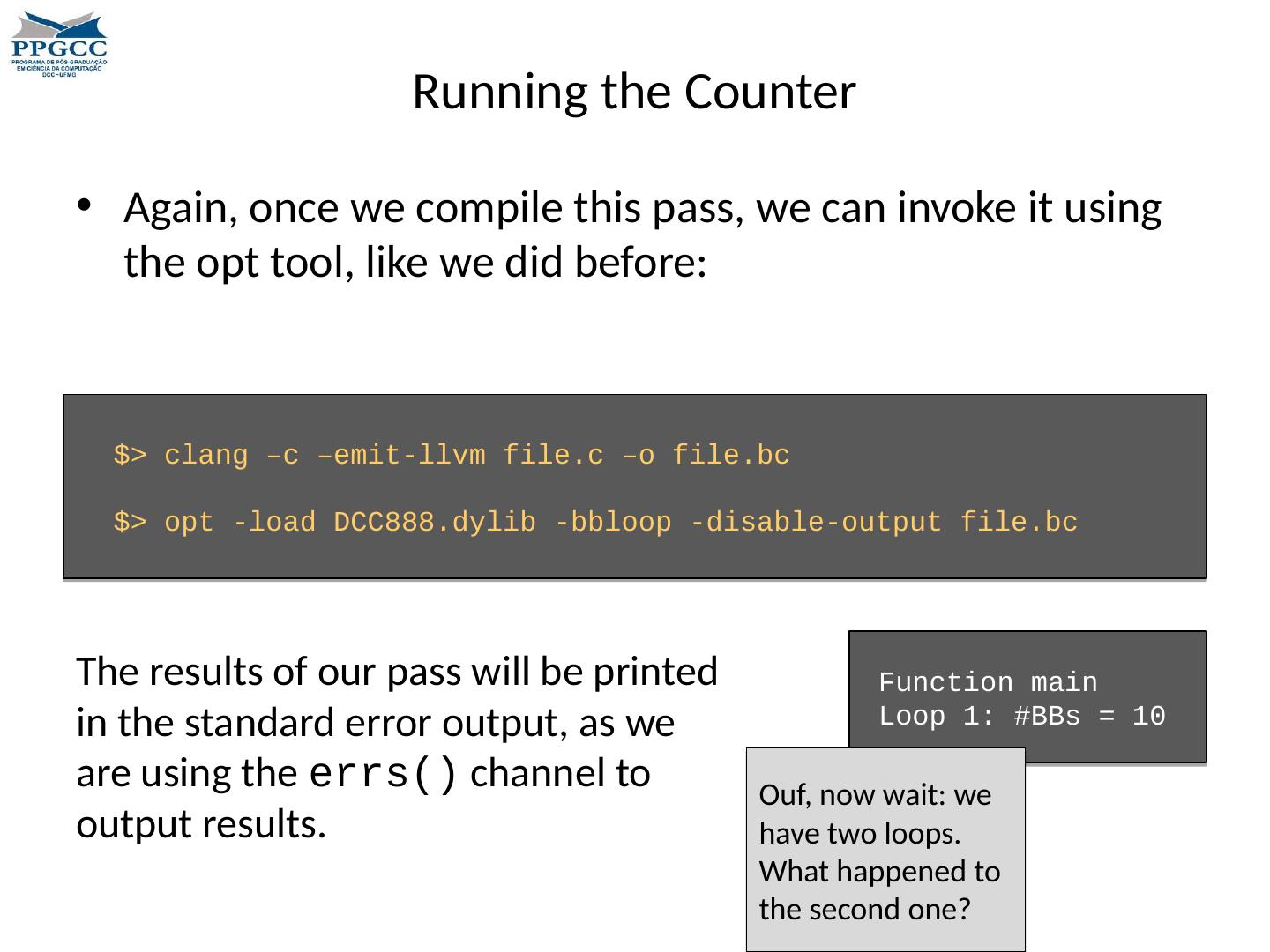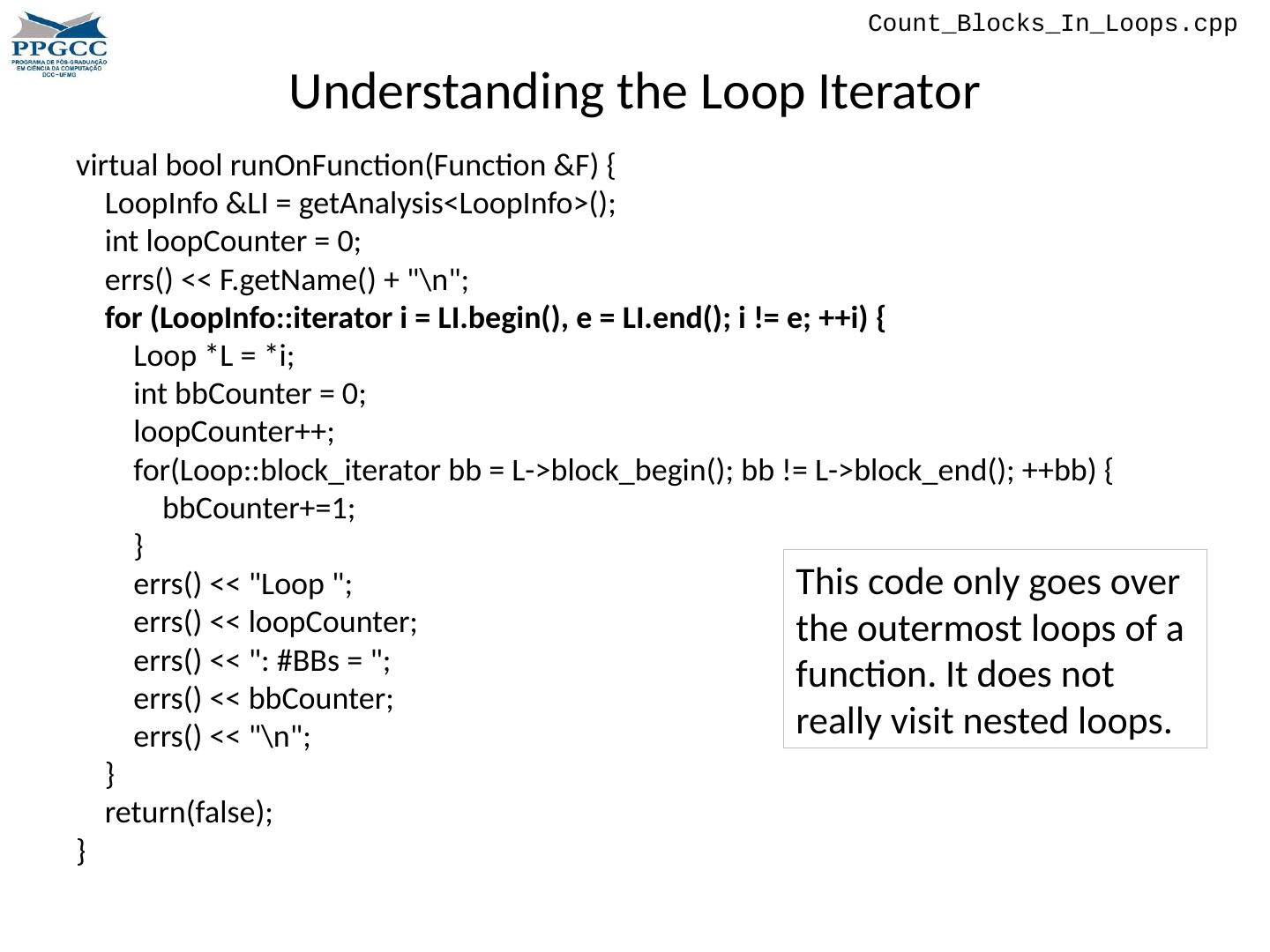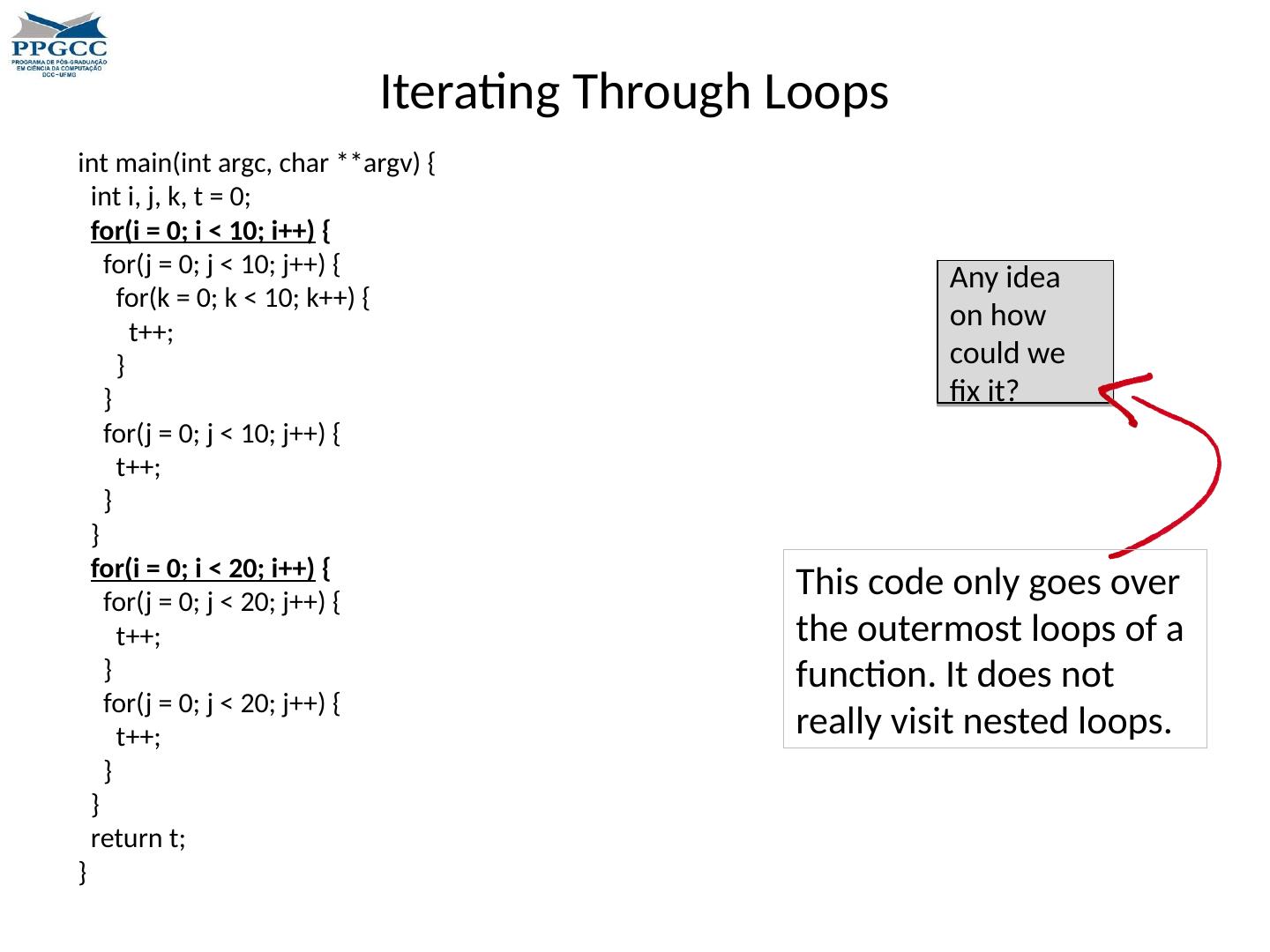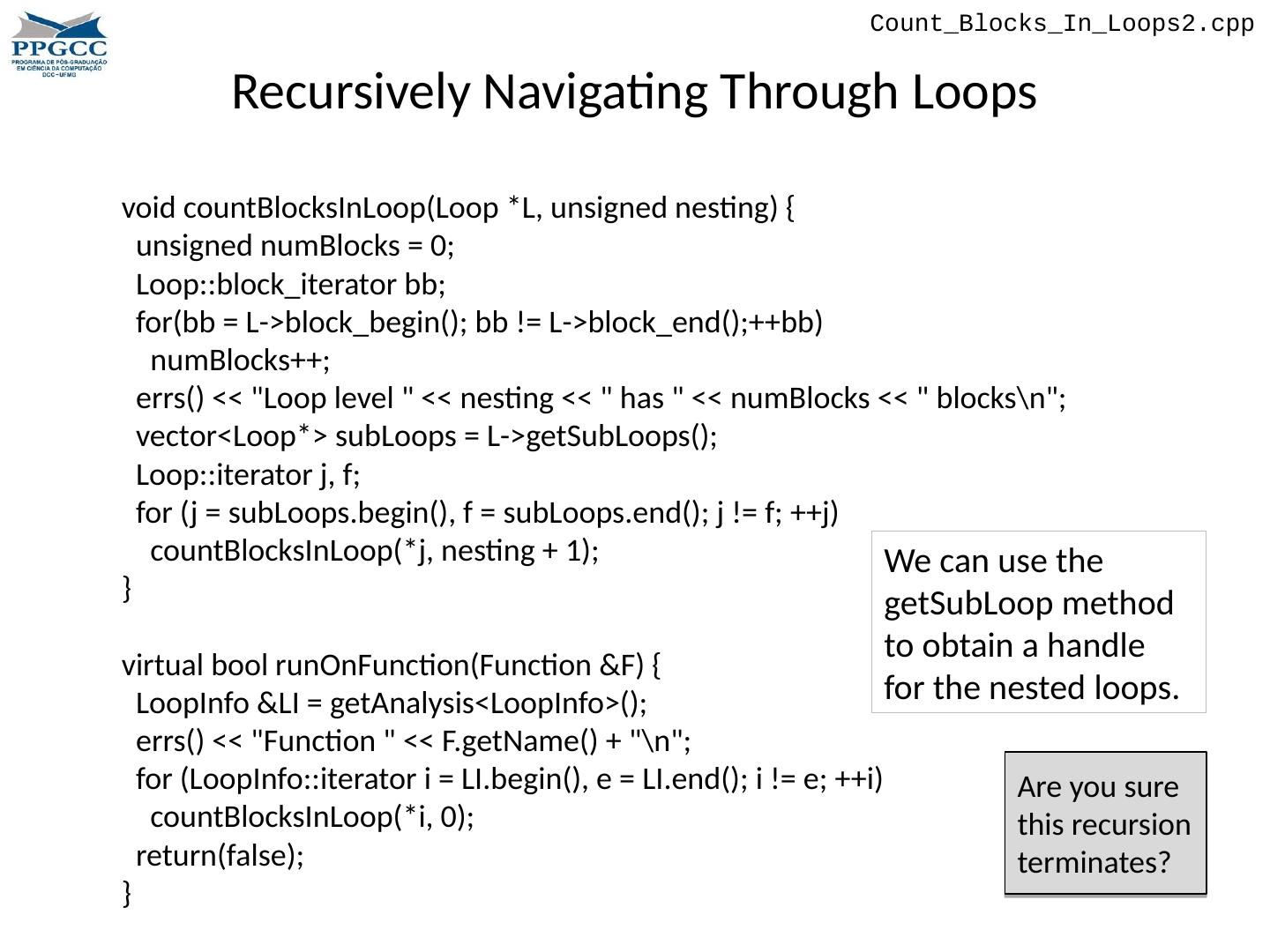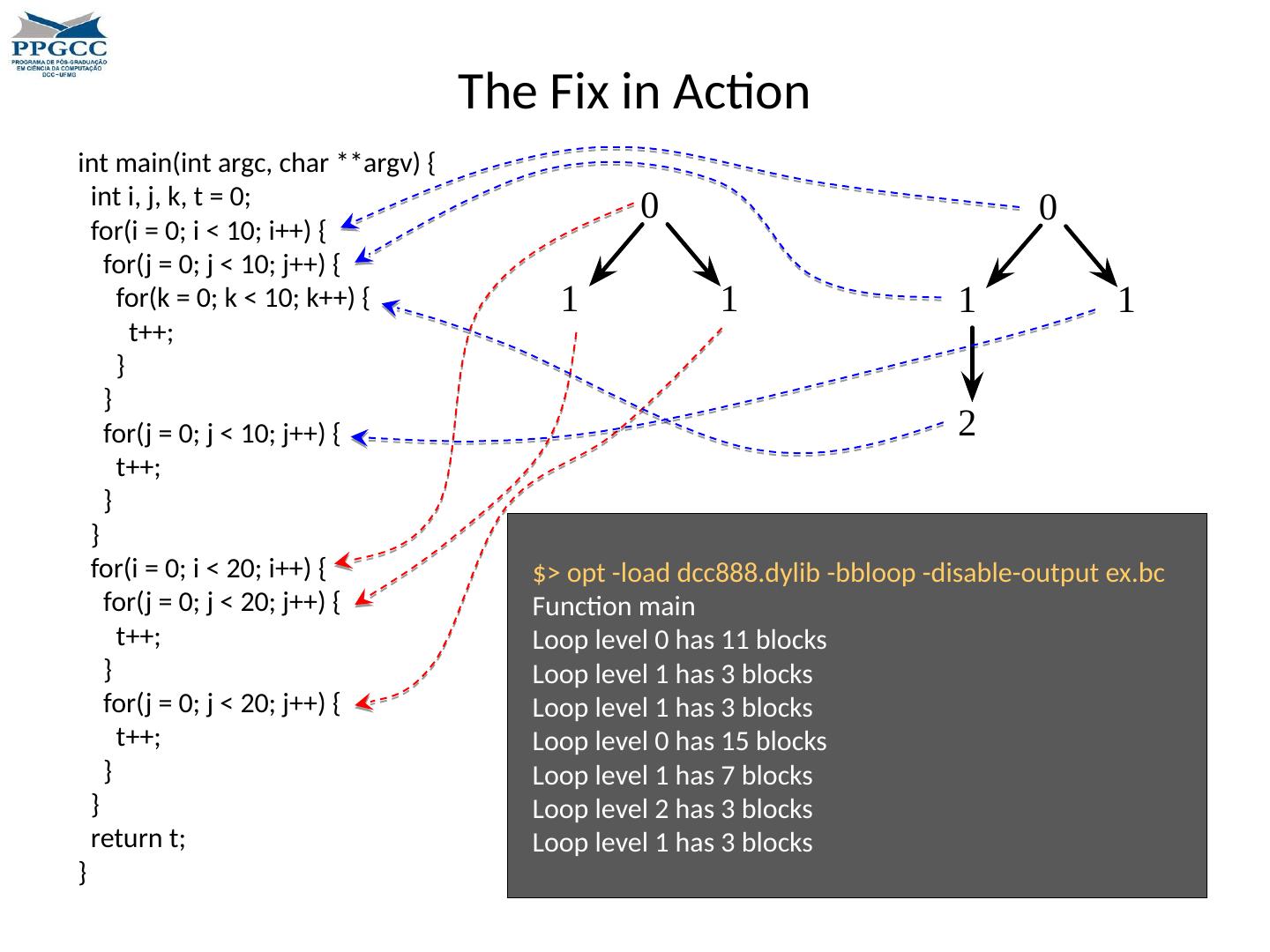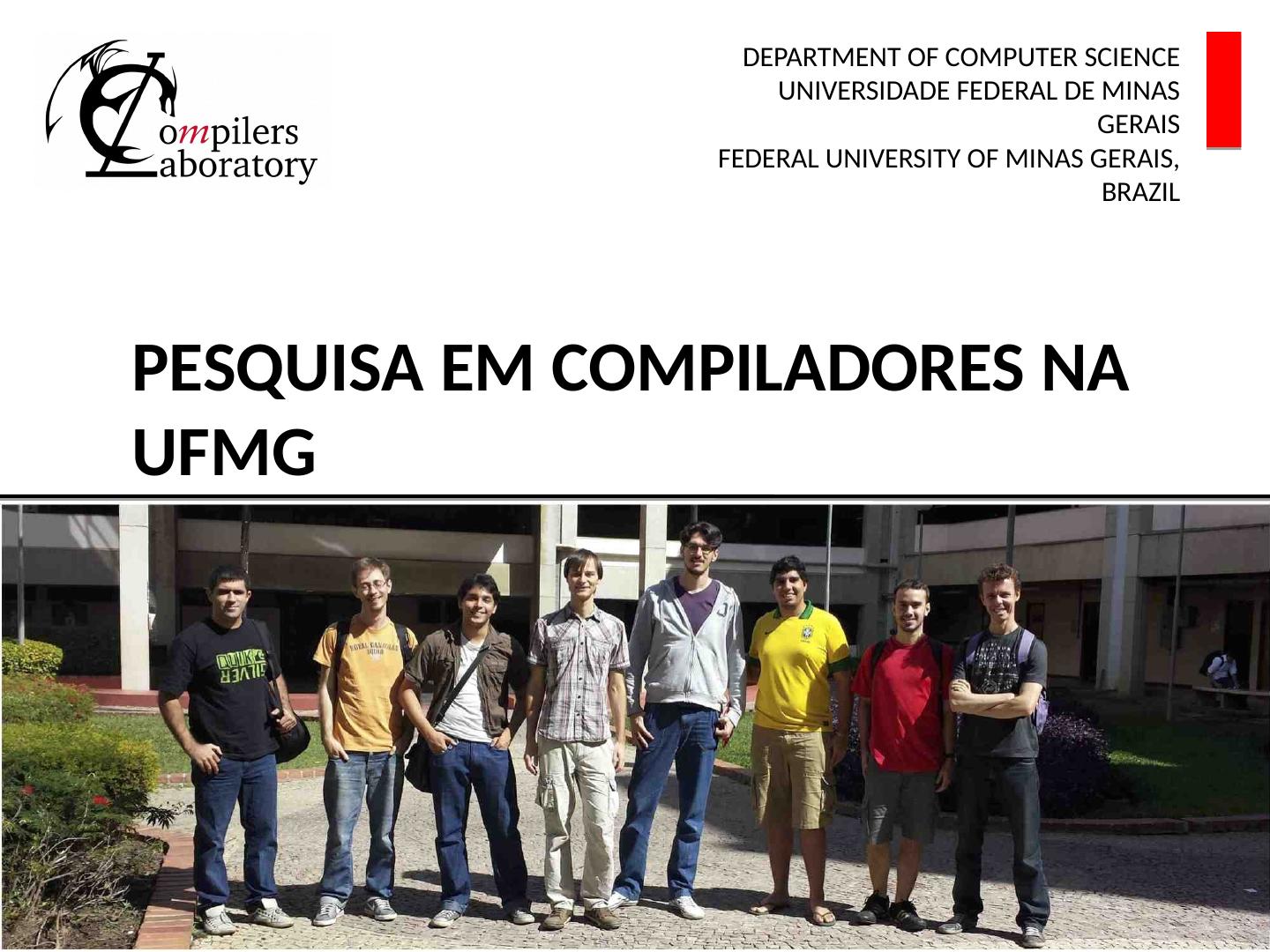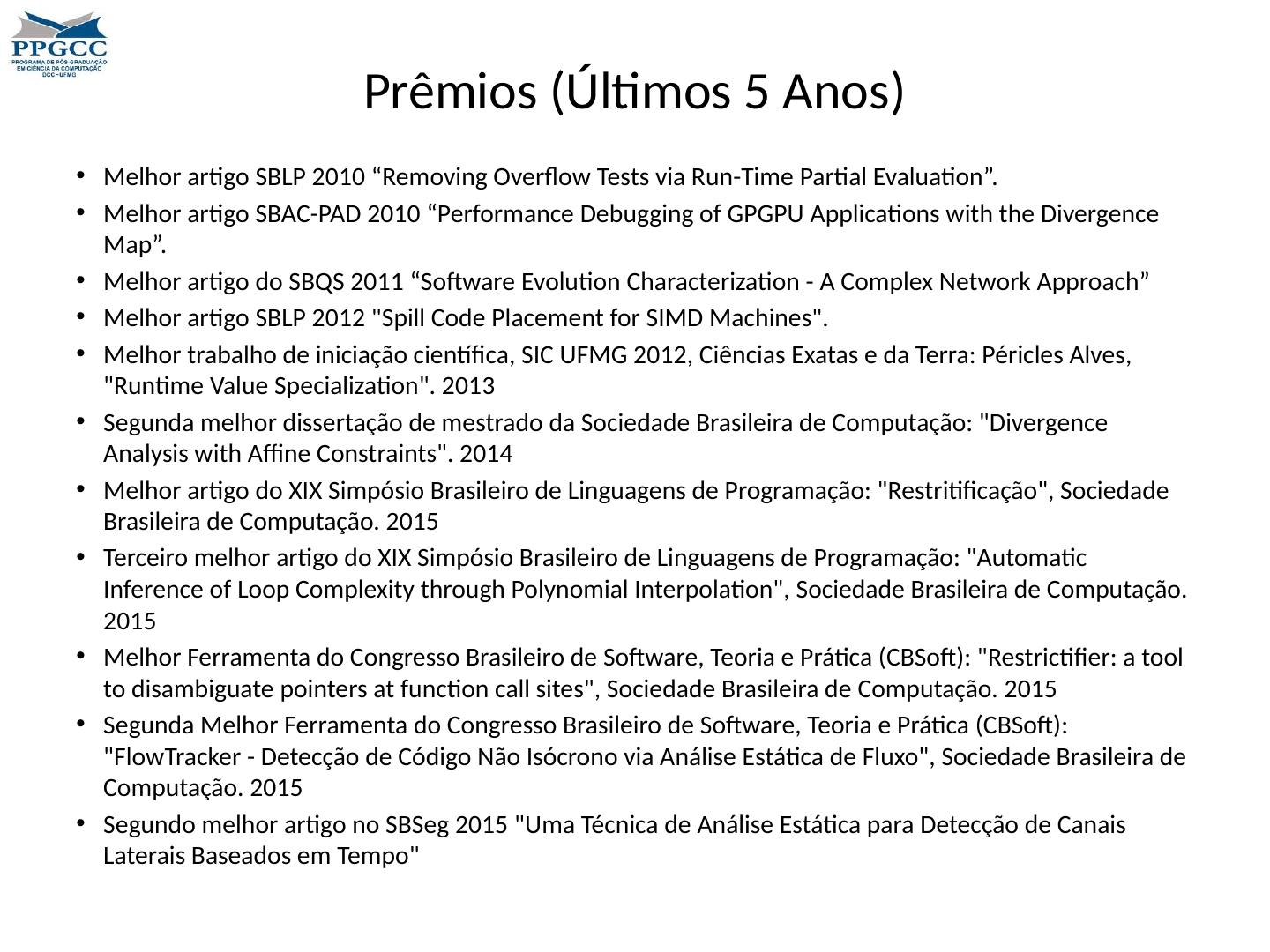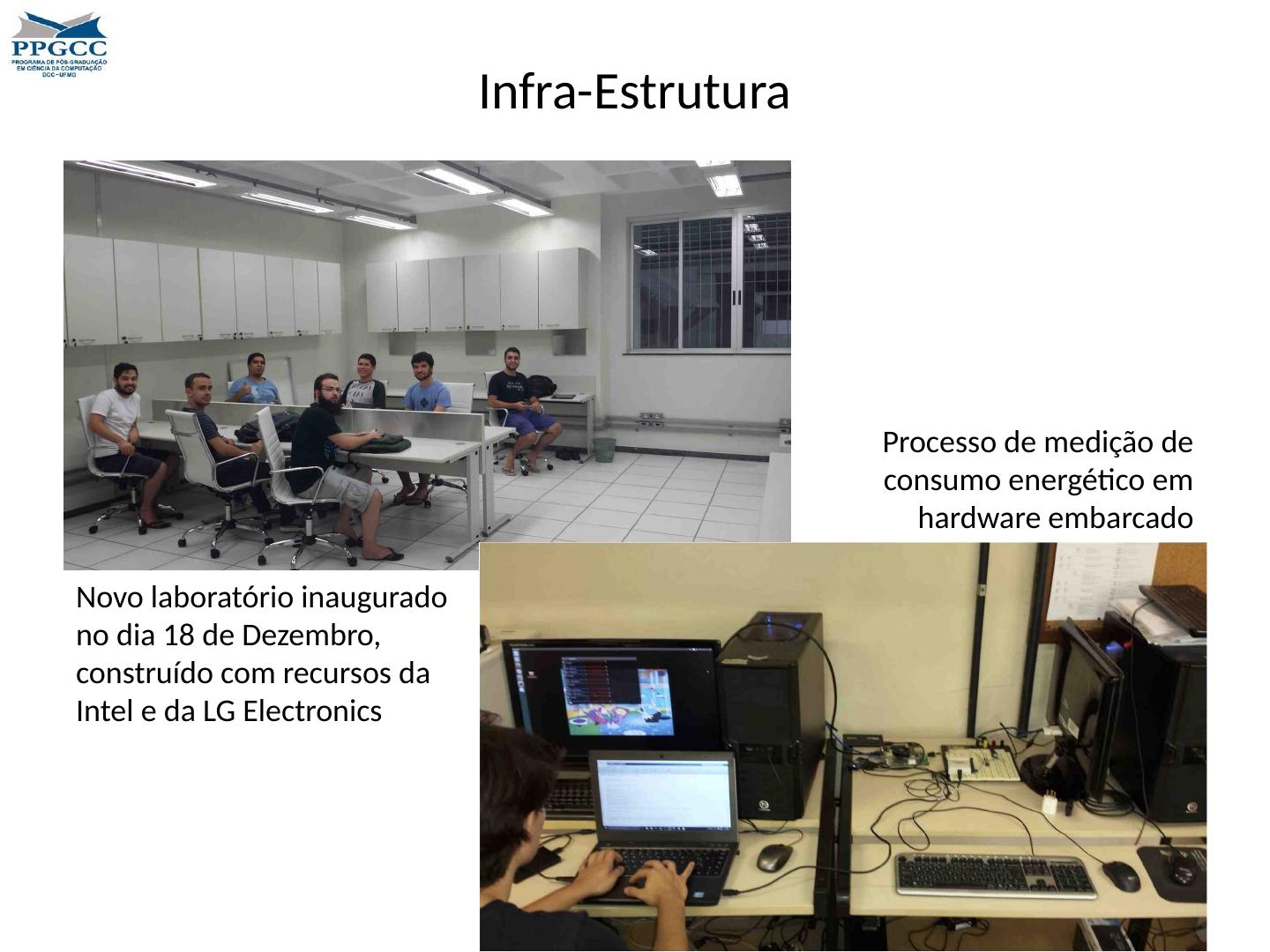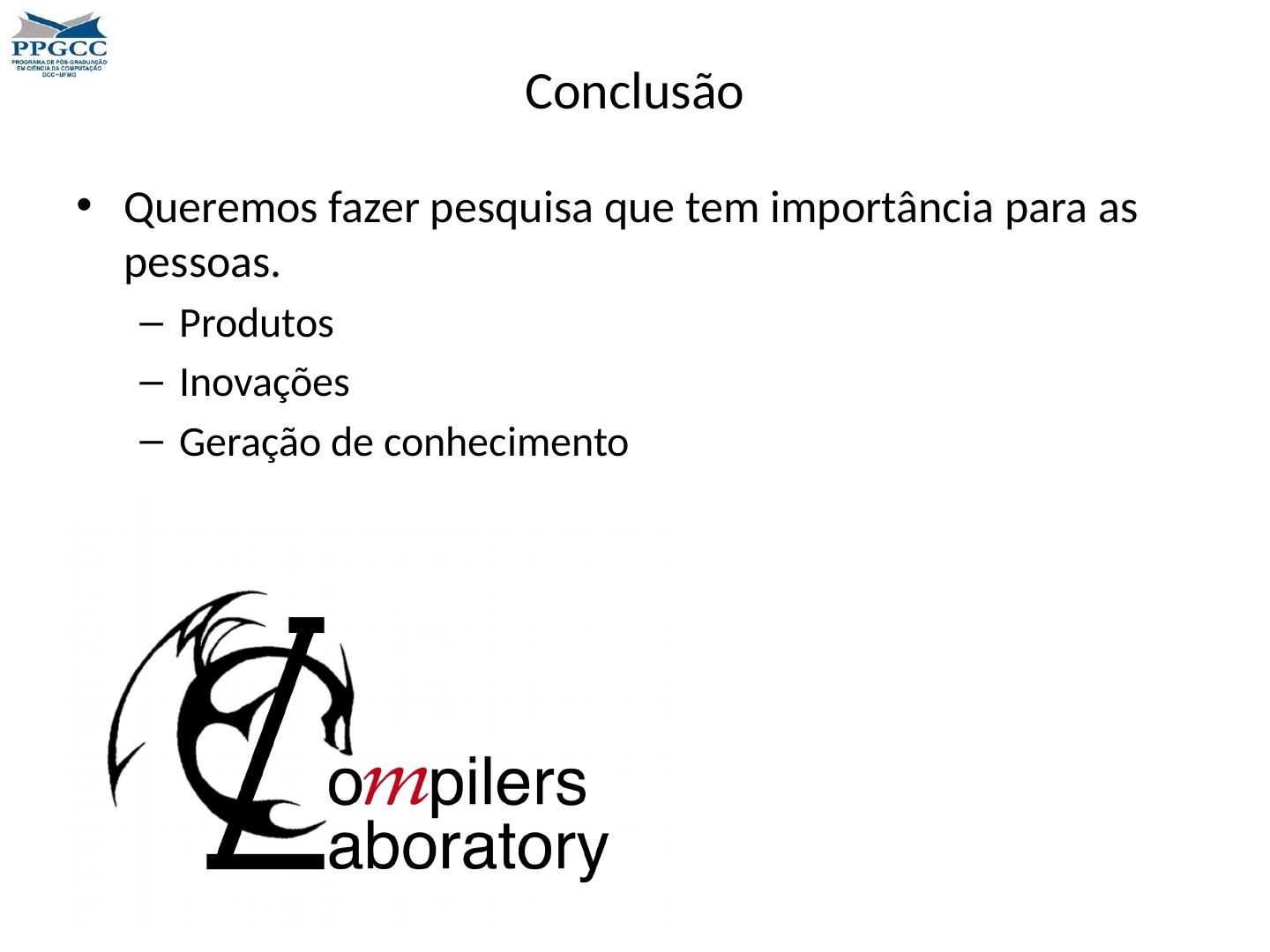- 快召唤伙伴们来围观吧
- 微博 QQ QQ空间 贴吧
- 文档嵌入链接
- <iframe src="https://www.slidestalk.com/u70/llvm_compiliation_infra_structure?embed" frame border="0" width="640" height="360" scrolling="no" allowfullscreen="true">复制
- 微信扫一扫分享
LLVM编译基础结构介绍
展开查看详情
1 .Introduction to the LLVM Compilation Infra-Structure Fernando Magno Quintão Pereira fernando@dcc.ufmg.br
2 .Why all this? Why should we study compilers? What is LLVM? Why should we study LLVM? What will we learn about LLVM?
3 .Why to Learn Compilers? "We do not need that many compiler guys. But those that we need, we need them badly." François Bodin – CEO of CAPS A lot of amazing people in computer science were working with compilers and programming languages. Who do you know in these photos? And many of the amazing things that we have today only exist because of compilers and programming languages!
4 .The Mission of the Compiler Writer The goal of a compiler writer is to bridge the gap between programming languages and the hardware; hence, making programmers more productive A compiler writer builds bridges between peopl e and machines , and this task is each day more challenging. Software engineers want abstractions that let them stay closer to the specification of the problems that they need to solve. Hardware engineers want efficiency. To obtain every little nanosecond of speed, they build machines each time more (beautifully) complex.
5 .What is LLVM? Implemented in C++ Several front-ends Several back-ends First release: 2003 Open source http:// llvm.org / LLVM is a compiler infrastructure designed as a set of reusable libraries with well-defined interfaces ♤ . ♤ : Taken from wikipedia at http:// en.wikipedia.org /wiki/LLVM
6 .LLVM is a Compilation Infra-Structure It is a framework that comes with lots of tools to compile and optimize code. $> cd llvm/Debug+Asserts/bin $> ls FileCheck count llvm-dis llvm -stress FileUpdate diagtool llvm-dwarfdump llvm-symbolizer arcmt -test fpcmp llvm -extract llvm-tblgen bugpoint llc llvm -link macho-dump c-arcmt-test lli llvm -lit modularize c -index-test lli -child-target llvm-lto not clang llvm-PerfectSf llvm -mc obj2yaml clang++ llvm-ar llvm-mcmarkup opt llvm -as llvm -nm pp-trace llvm -size clang-check llvm-bcanalyzer llvm-objdump rm-cstr-calls clang-format llvm-c-test llvm-ranlib tool-template clang-modernize llvm-config llvm-readobj yaml2obj clang- tblgen llvm-cov llvm-rtdyld llvm -diff clang-tidy
7 .LLVM is a Compilation Infra-Structure Compile C/C++ programs: $> echo " int main() {return 42;}" > test.c $> clang test.c $> ./ a.out $> echo $? 42 clang/clang++ are very competitive when compared with, say, gcc , or icc . Some of these compilers are faster in some benchmarks, and slower in others. Usually clang/clang++ have faster compilation times. The Internet is crowed with benchmarks. Which compiler do you think generates faster code: LLVM or gcc ?
8 .LLVM or GCC? clang/clang++ are very competitive when compared with, say, gcc , or icc . Some of these compilers are faster in some benchmarks, and slower in others. Usually clang/clang++ have faster compilation times. The Internet is crowed with benchmarks: http:// www.phoronix.com/scan.php?page = article&item =gcc49_compiler_llvm35&num=2
9 .Why to Learn LLVM? Intensively used in the academia ♧ : Used by many companies LLVM is maintained by Apple. ARM, NVIDIA, Mozilla, Cray, etc. Clean and modular interfaces. Important awards: Most cited CGO paper; ACM Software System Award 2012 ♧ : 2831 citations in February 13 th of 2017
10 .Many Languages use LLVM Do you know these programming languages?
11 .Many Languages use LLVM Do you know these programming languages?
12 .Getting LLVM LLVM is fairly easy to install. For a quick overview on the process, we recommend: http://llvm.org/releases/3.4/docs/GettingStarted.html If you want to give it a try yourself, follow the steps below: $> svn co http://llvm.org/svn/llvm-project/llvm/tags/RELEASE_34/final llvm $> cd llvm /tools $> svn co http://llvm.org/svn/llvm-project/cfe/tags/RELEASE_34/final clang $> cd ../projects/ $> svn co http://llvm.org/svn/llvm-project/compiler-rt/tags/RELEASE_34/final compiler- rt $> cd ../tools/clang/tools/ $> svn co http://llvm.org/svn/llvm-project/clang-tools-extra/tags/RELEASE_34/final extra We are installing LLVM version 3.4 using the commands above.
13 .Compiling LLVM Once you have gotten all the files, via svn , you must compile LLVM. There are more than one way to compile it. If you want to do it quickly, you can configure LLVM with the option --enable-optimized set. Otherwise, a default compilation, with debug symbols, will be performed. $> cd ~/Programs/ llvm # Where I have downloaded it. $> mkdir build $> cmake -G "Unix Makefiles " -DCMAKE_INSTALL_PREFIX=~/Programs/ llvm /build ~/Programs/ llvm $> make -j16
14 .Optimizations in Practice The opt tool, available in the LLVM toolbox, performs machine independent optimizations. There are many optimizations available through opt. To have an idea, type opt --help.
15 .Optimizations in Practice $> opt --help Optimizations available: - adce - Aggressive Dead Code Elimination -always-inline - Inliner for always_inline functions -break- crit -edges - Break critical edges in CFG - codegenprepare - Optimize for code generation - constmerge - Merge Duplicate Global Constants - constprop - Simple constant propagation -correlated-propagation - Value Propagation - dce - Dead Code Elimination - deadargelim - Dead Argument Elimination -die - Dead Instruction Elimination -dot- cfg - Print CFG of function to dot file - dse - Dead Store Elimination -early- cse - Early CSE - globaldce - Dead Global Elimination - globalopt - Global Variable Optimizer - gvn - Global Value Numbering - indvars - Induction Variable Simplification - instcombine - Combine redundant instructions - instsimplify - Remove redundant instructions - ipconstprop - Interprocedural constant propagation -loop-reduce - Loop Strength Reduction - reassociate - Reassociate expressions -reg2mem - Demote all values to stack slots - sccp - Sparse Conditional Constant Propagation - scev-aa - ScalarEvolution -based Alias Analysis - simplifycfg - Simplify the CFG ... What do you think each of these optimizations do?
16 .Levels of Optimizations Like gcc , clang supports different levels of optimizations, e.g., -O0 (default), -O1, -O2 and -O3. To find out which optimization each level uses, you can try: $> llvm -as < /dev/null | opt -O3 -disable-output -debug-pass=Arguments In my system (LLVM/Darwin), -O1 gives me: - targetlibinfo -no- aa - tbaa - basicaa - notti - globalopt - ipsccp - deadargelim - instcombine - simplifycfg - basiccg -prune-eh -inline-cost -always-inline - functionattrs - sroa - domtree -early- cse -lazy-value-info -jump-threading -correlated-propagation - simplifycfg - instcombine - tailcallelim - simplifycfg - reassociate - domtree -loops -loop-simplify - lcssa -loop-rotate - licm - lcssa -loop- unswitch - instcombine -scalar-evolution -loop-simplify - lcssa - indvars -loop-idiom -loop-deletion -loop-unroll - memdep - memcpyopt - sccp - instcombine -lazy-value-info -jump-threading -correlated-propagation - domtree - memdep - dse - adce - simplifycfg - instcombine -strip-dead-prototypes - preverify - domtree -verify llvm -as is the LLVM assembler. It reads a file containing human-readable LLVM assembly language, translates it to LLVM bytecode , and writes the result into a file or to standard output.
17 .Levels of Optimizations Like gcc , clang supports different levels of optimizations, e.g., -O0 (default), -O1, -O2 and -O3. To find out which optimization each level uses, you can try: $> llvm -as < /dev/null | opt -O3 -disable-output -debug-pass=Arguments In my system (LLVM/Darwin), -O1 gives me: - targetlibinfo -no- aa - tbaa - basicaa - notti - globalopt - ipsccp - deadargelim - instcombine - simplifycfg - basiccg -prune-eh -inline-cost -always-inline - functionattrs - sroa - domtree -early- cse -lazy-value-info -jump-threading -correlated-propagation - simplifycfg - instcombine - tailcallelim - simplifycfg - reassociate - domtree -loops -loop-simplify - lcssa -loop-rotate - licm - lcssa -loop- unswitch - instcombine -scalar-evolution -loop-simplify - lcssa - indvars -loop-idiom -loop-deletion -loop-unroll - memdep - memcpyopt - sccp - instcombine -lazy-value-info -jump-threading -correlated-propagation - domtree - memdep - dse - adce - simplifycfg - instcombine -strip-dead-prototypes - preverify - domtree -verify Can you guess why the same analysis or optimization may run more than once?
18 .Virtual Register Allocation One of the most basic optimizations that opt performs is to map memory slots into variables. This optimization is very useful, because the clang front end maps every variable to memory: void main() { int c1 = 17; int c2 = 25; int c3 = c1 + c2; printf("Value = % d
19 .Virtual Register Allocation One of the most basic optimizations that opt performs is to map memory slots into variables. We can map memory slots into registers with the mem2reg pass: $> opt -mem2reg const.bc > const.reg.bc $> opt –view- cfg const.reg.bc How could we further optimize this program? void main() { int c1 = 17; int c2 = 25; int c3 = c1 + c2; printf("Value = % d
20 .Constant Propagation We can fold the computation of expressions that are known at compilation time with the constprop pass. $> opt - constprop const.reg.bc > const.cp.bc $> opt –view- cfg const.cp.bc What is %1 in the left CFG? And what is i32 42 in the CFG on the right side?
21 .One more: Common Subexpression Elimination void main(int argc , char** argv ) { char c1 = argc + 1; char c2 = argc - 1; char c3 = c1 + c2; char c4 = c1 + c2; char c5 = c4 * 4; if ( argc % 2) printf("Value = % d
22 .One more: Common Subexpression Elimination $> opt -early- cse cse.reg.bc > cse.o.bc $> opt –view- cfg cse.o.bc Can you intuitively tell how CSE works?
23 .LLVM Provides an Intermediate Representation LLVM represents programs, internally, via its own instruction set. The LLVM optimizations manipulate these bytecodes . We can program directly on them. We can also interpret them. int callee(const int * X) { return *X + 1; } int main() { int T = 4; return callee(&T ); } $> clang – c –emit- llvm f.c – o f.bc $> opt –mem2reg f.bc – o f.bc $> llvm-dis f.bc $> cat f.ll ; Function Attrs : nounwind ssp define i32 @callee(i32* %X) #0 { entry: %0 = load i32* %X, align 4 %add = add nsw i32 %0, 1 ret i32 %add } ♤ ♤ : Example taken from the slides of Gennady Pekhimenko "The LLVM Compiler Framework and Infrastructure"
24 .LLVM Bytecodes are Interpretable Bytecode is a form of instruction set designed for efficient execution by a software interpreter. They are portable! Example: Java bytecodes . The tool lli directly executes programs in LLVM bitcode format. lli may compile these bytecodes just-in-time, if a JIT is available. $> echo " int main() { printf(\"Oi
25 .How Does the LLVM IR Look Like? RISC instruction set, with usual opcodes add, mul , or, shift, branch, load, store, etc Typed representation. Static Single Assignment format Each variable noun has only one definition in the program code. Control flow is represented explicitly. %0 = load i32* %X, align 4 %add = add nsw i32 %0, 1 ret i32 %add switch i32 %0, label % sw.default [ i32 1, label % sw.bb i32 2, label %sw.bb1 i32 3, label %sw.bb2 i32 4, label %sw.bb3 i32 5, label %sw.bb4 ] switch(argc ) { case 1: x = 2; case 2: x = 3; case 3: x = 5; case 4: x = 7; case 5: x = 11; default: x = 1; } This is C This is LLVM
26 .We can program directly on the IR ♧ ♧ : although this is not something to the faint of heart. int callee(const int * X) { return *X + 1; } int main() { int T = 4; return callee(&T ); } This is C This is LLVM ; Function Attrs : nounwind ssp define i32 @callee(i32* %X) #0 { entry: % tmp = load i32* %X, align 4 %add = add nsw i32 % tmp , 1 ret i32 %add } ; Function Attrs : nounwind ssp define i32 @main() #0 { entry: %T = alloca i32, align 4 store i32 4, i32* %T, align 4 %call = call i32 @callee(i32* %T) ret i32 %call } $> clang - c -emit- llvm ex0.c - o ex0.bc $> opt -mem2reg - instnamer ex0.bc - o ex0.bc $> llvm-dis < ex0.bc Which optimization could we apply on this code?
27 .Hacking the Bytecode File This is the original bytecode ; Function Attrs : nounwind ssp define i32 @callee(i32* %X) #0 { entry: % tmp = load i32* %X, align 4 %add = add nsw i32 % tmp , 1 ret i32 %add } ; Function Attrs : nounwind ssp define i32 @main() #0 { entry: %T = alloca i32, align 4 store i32 4, i32* %T, align 4 %call = call i32 @callee(i32* %T) ret i32 %call } This is the optimized bytecode ; Function Attrs : nounwind ssp define i32 @callee(i32 %X) #0 { entry: %add = add nsw i32 %X, 1 ret i32 %add } ; Function Attrs : nounwind ssp define i32 @main() #0 { entry: %call = call i32 @callee(i32 4) ret i32 %call } Can you point out the differences between the files? $> clang ex0.hack.ll $> ./ a.out $> echo $? $> 5 We can compile and execute the bytecode file:
28 .Understanding our Hand Optimization ; Function Attrs : nounwind ssp define i32 @callee(i32* %X) #0 { entry: % tmp = load i32* %X, align 4 %add = add nsw i32 % tmp , 1 ret i32 %add } ; Function Attrs : nounwind ssp define i32 @main() #0 { entry: %call = call i32 @callee(i32 4) ret i32 %call } int callee(const int * X){ return *X + 1; } int main() { int T = 4; return callee(&T ); } int callee(int X) { return X + 1; } int main() { int T = 4; return callee(T ); } ; Function Attrs : nounwind ssp define i32 @main() #0 { entry: %T = alloca i32, align 4 store i32 4, i32* %T, align 4 %call = call i32 @callee(i32* %T) ret i32 %call } ; Function Attrs : nounwind ssp define i32 @callee(i32 %X) #0 { entry: %add = add nsw i32 %X, 1 ret i32 %add } We did, by hand, some sort of scalarization , i.e., we are replacing pointers with scalars. Scalars are, in compiler jargon, the variables whose values we can keep in registers.
29 .Generating Machine Code Once we have optimized the intermediate program, we can translate it to machine code. In LLVM, we use the llc tool to perform this translation. This tool is able to target many different architectures. $> llc --version Registered Targets: alpha - Alpha [experimental] arm - ARM bfin - Analog Devices Blackfin c - C backend cellspu - STI CBEA Cell SPU cpp - C++ backend mblaze - MBlaze mips - Mips mips64 - Mips64 [experimental] mips64el - Mips64el [experimental] mipsel - Mipsel msp430 - MSP430 [experimental] ppc32 - PowerPC 32 ppc64 - PowerPC 64 ptx32 - PTX (32-bit) [Experimental] ptx64 - PTX (64-bit) [Experimental] sparc - Sparc sparcv9 - Sparc V9 systemz - SystemZ thumb - Thumb x86 - 32-bit X86: Pentium-Pro x86-64 - 64-bit X86: EM64T and AMD64 xcore - XCore




